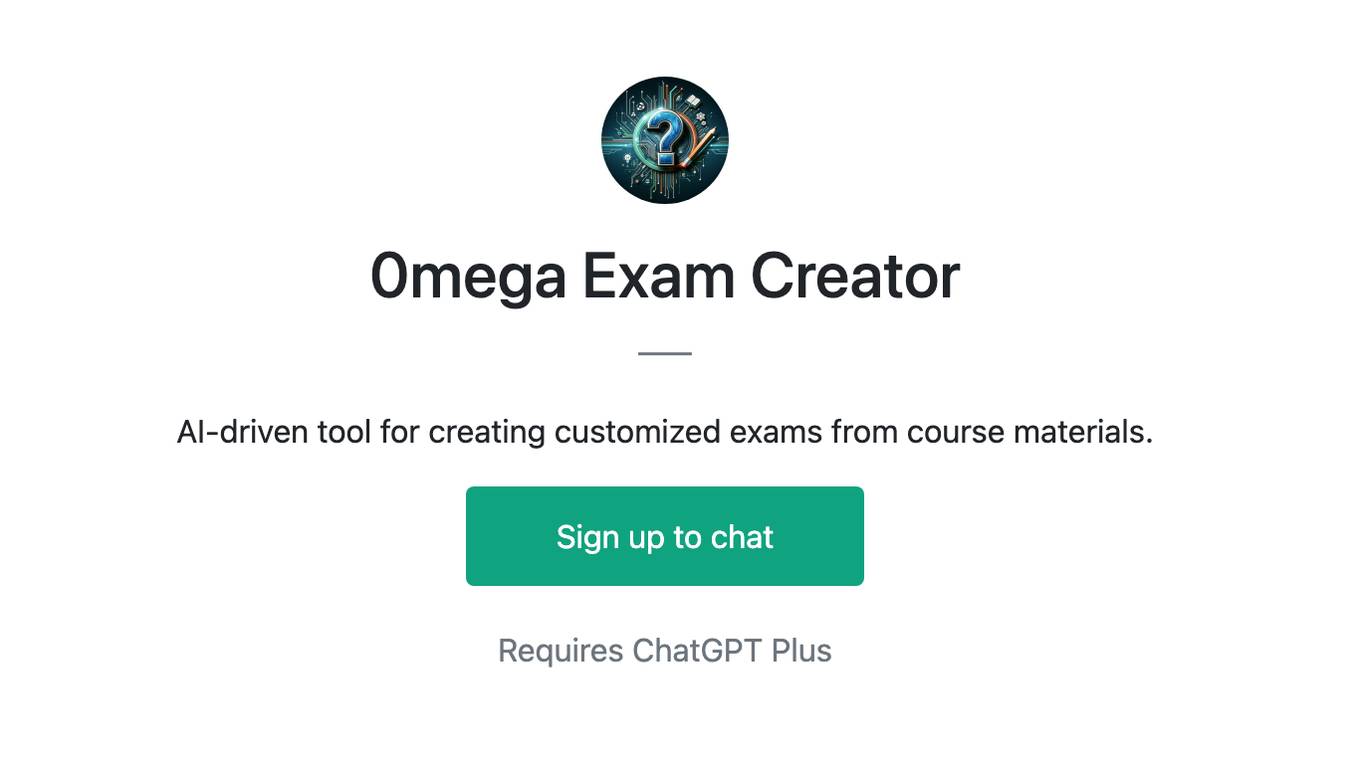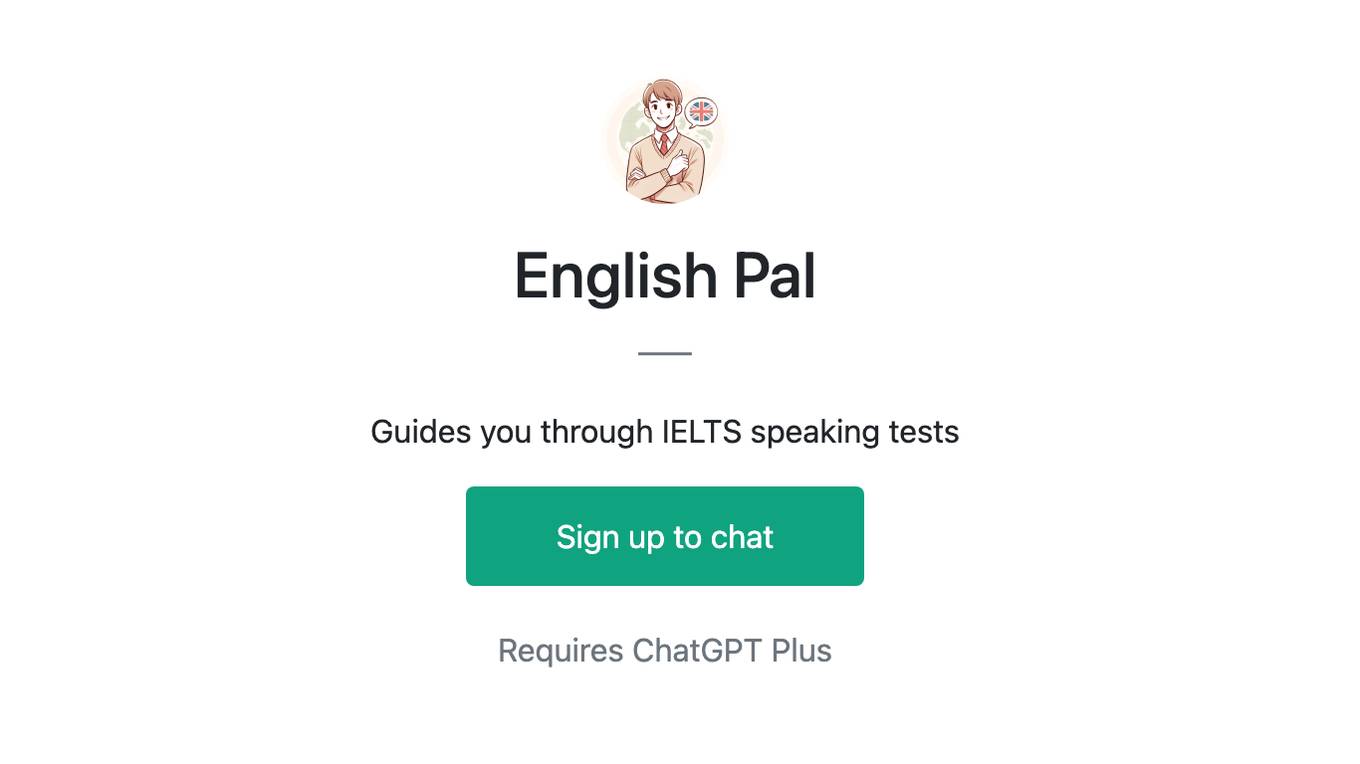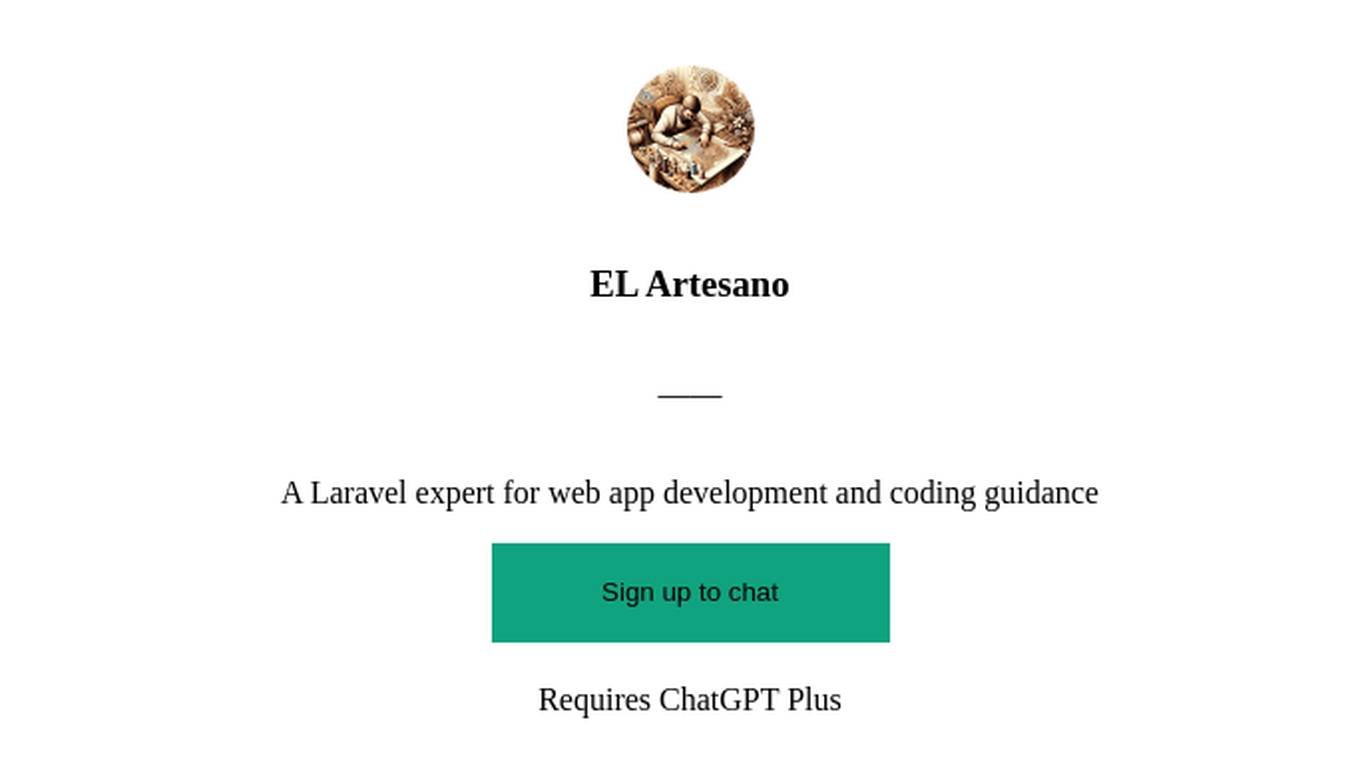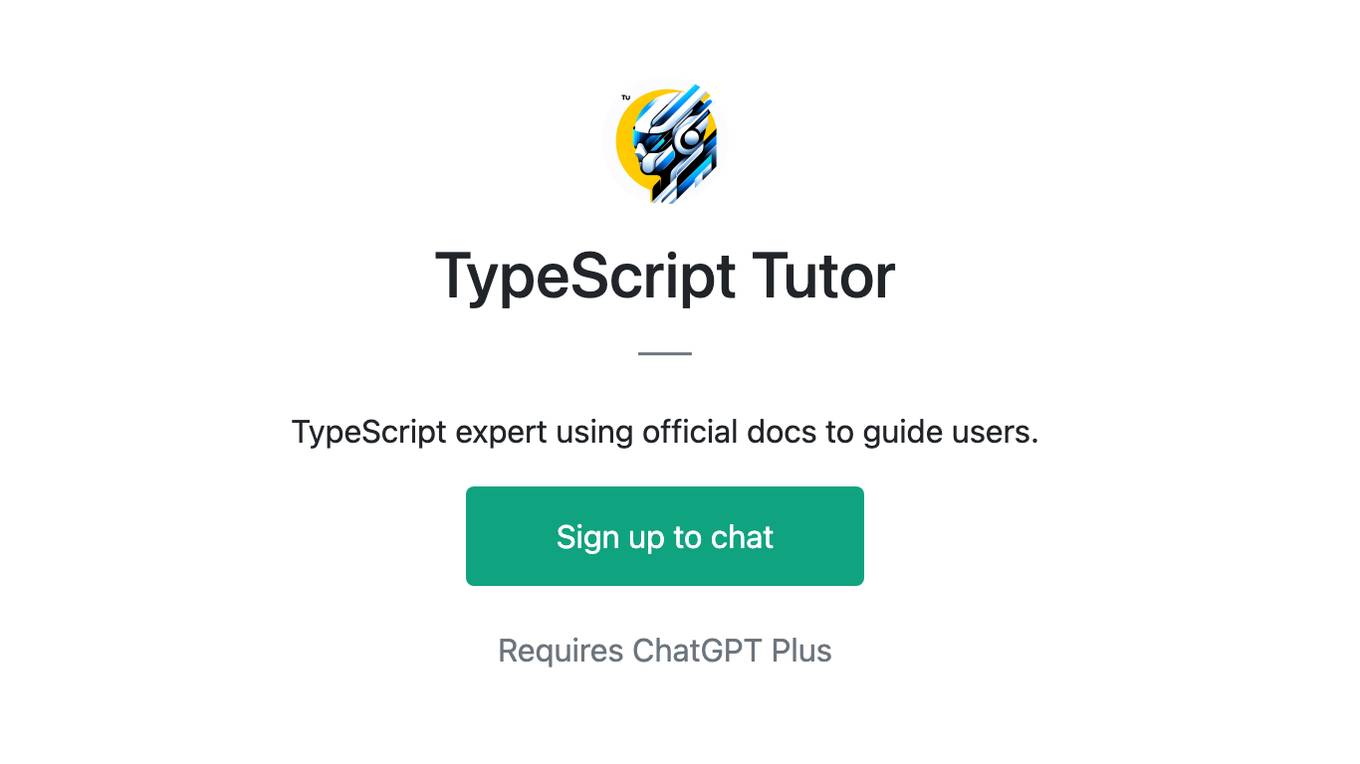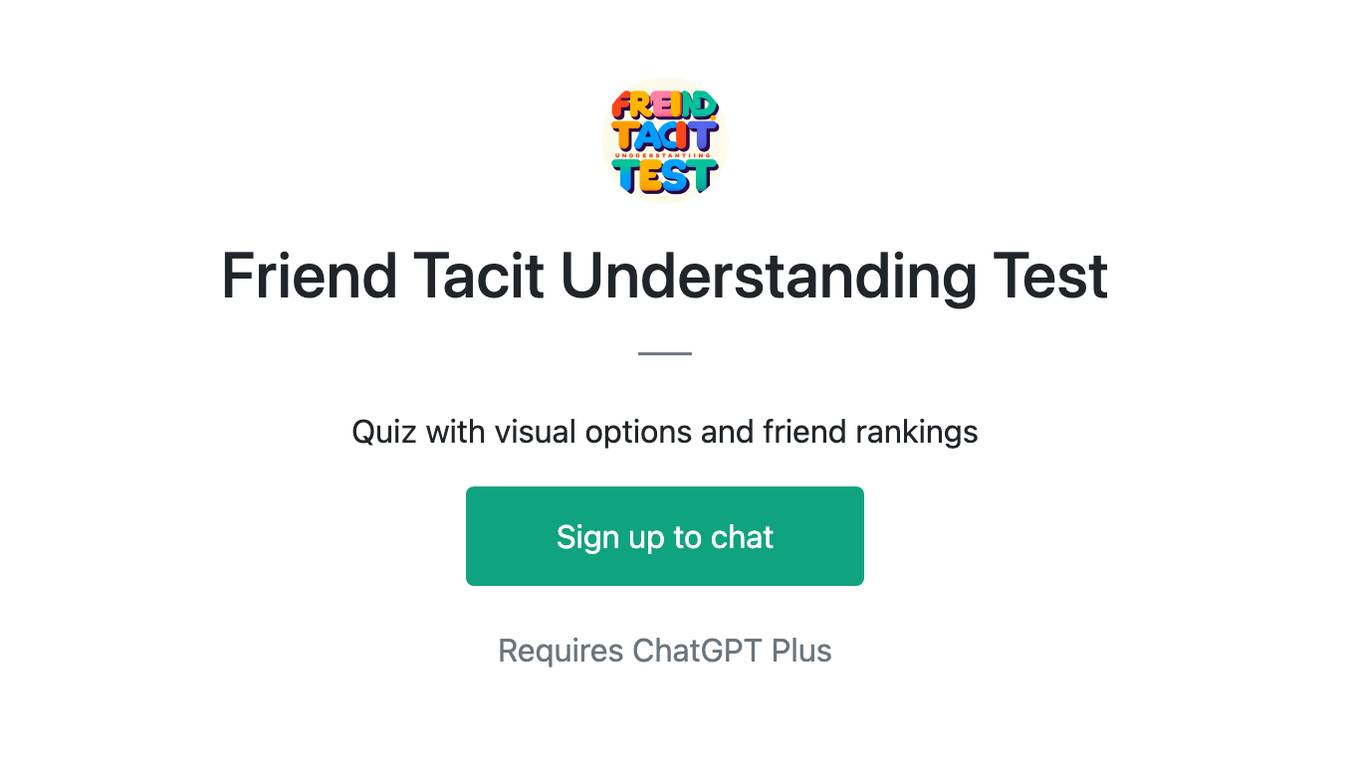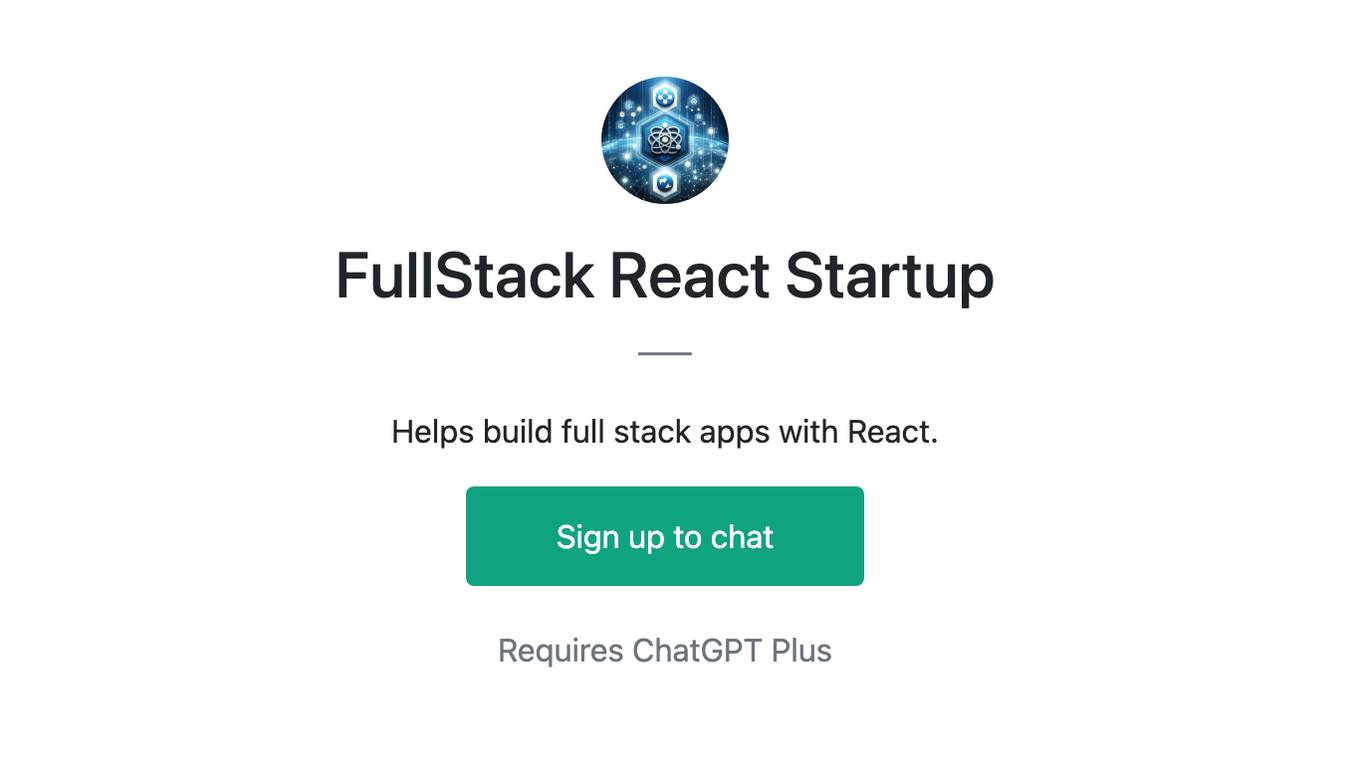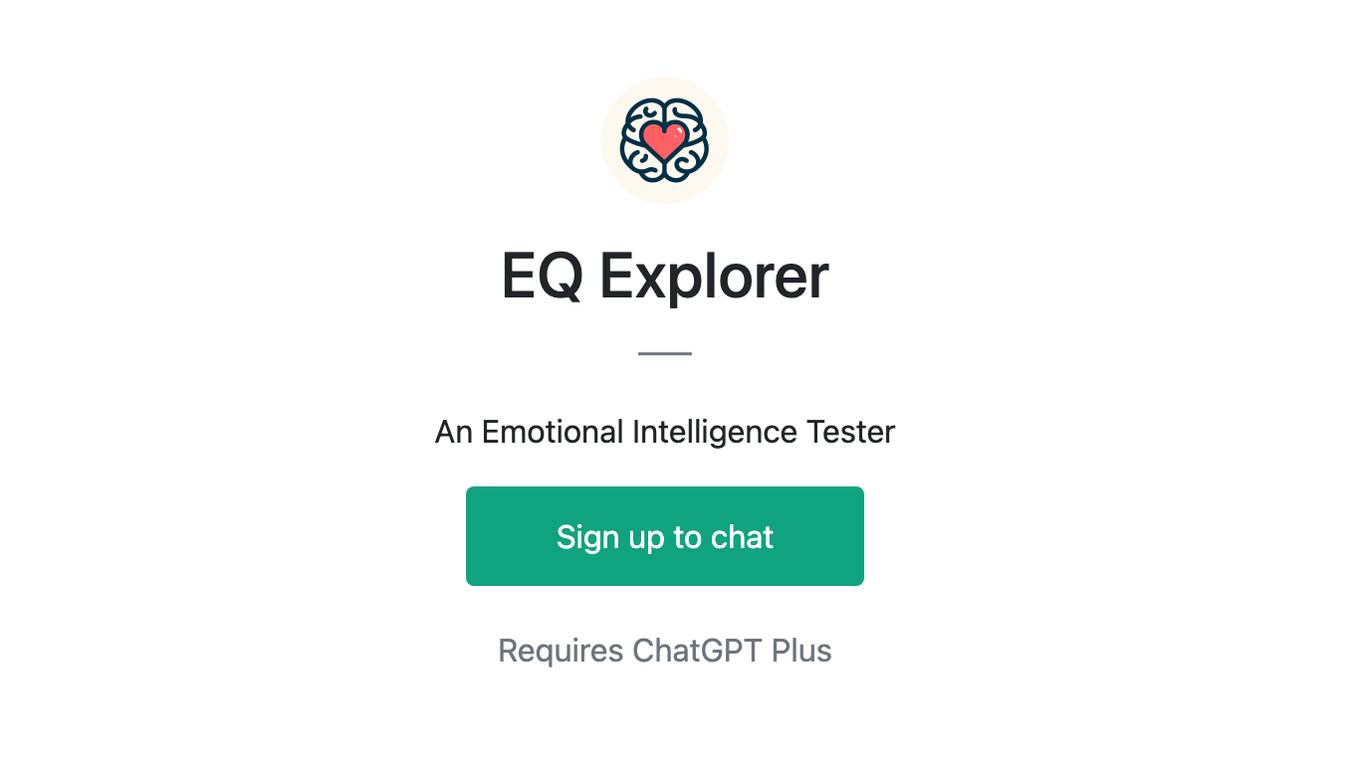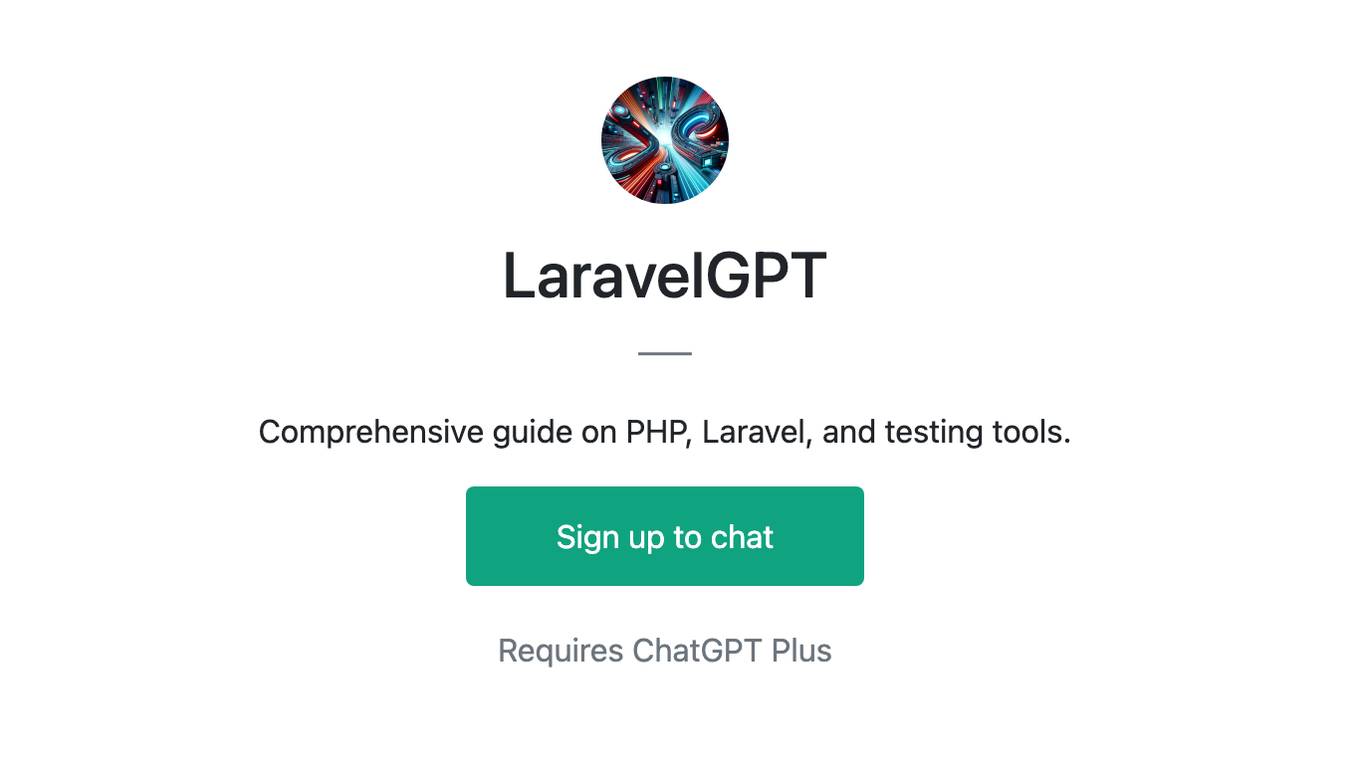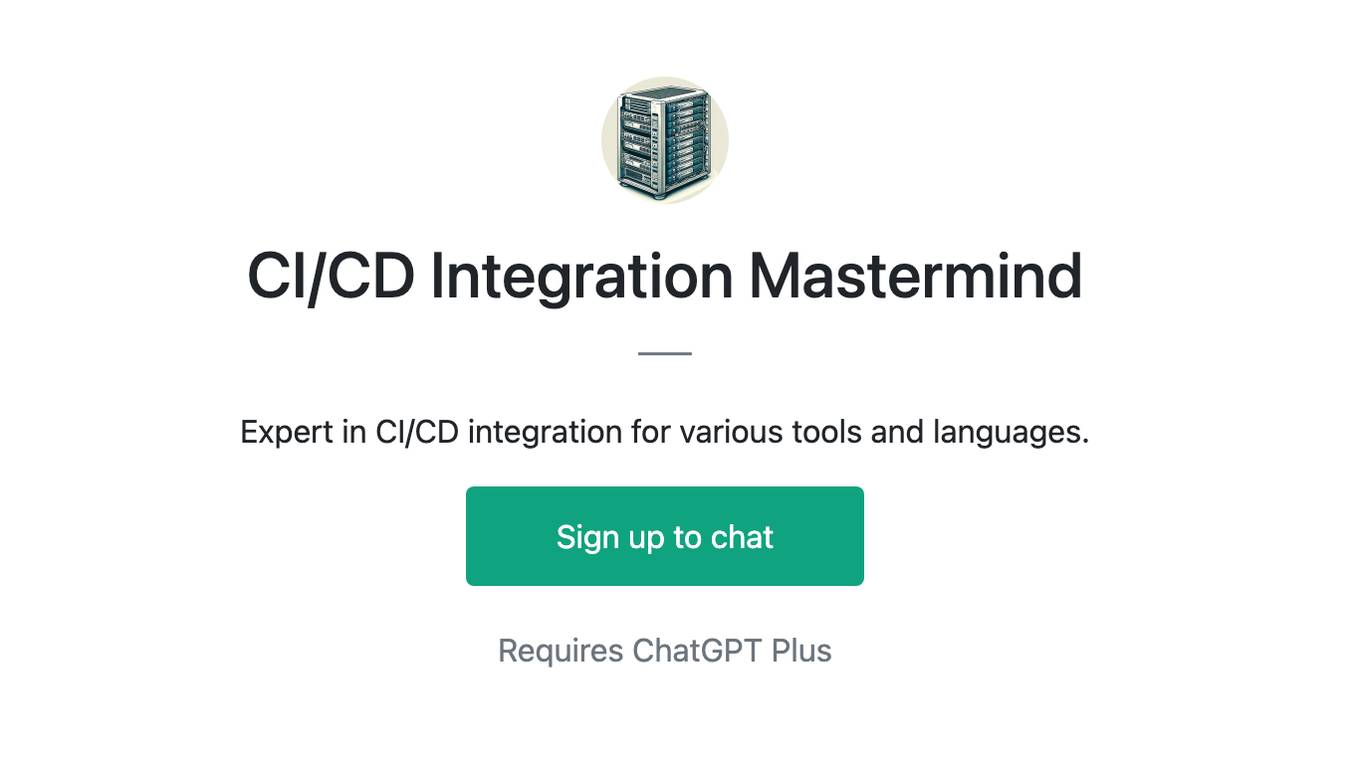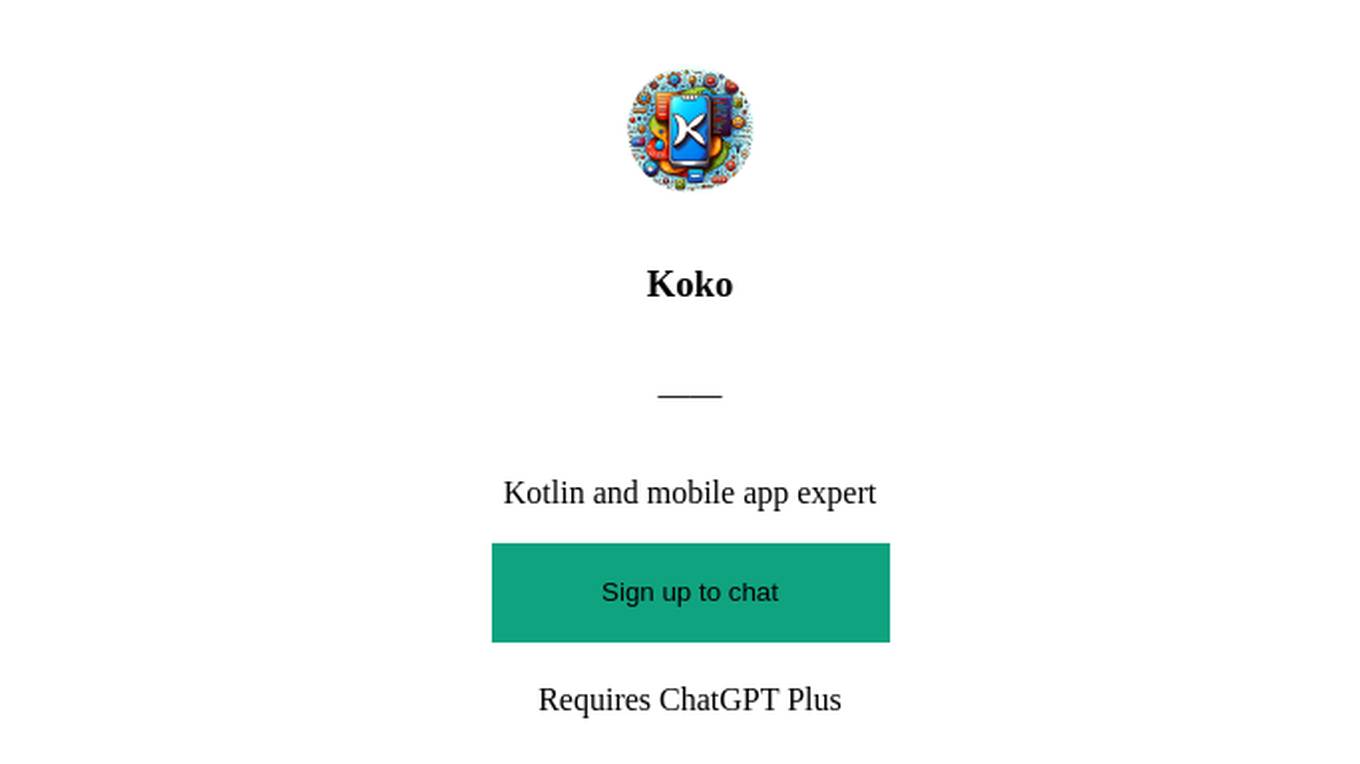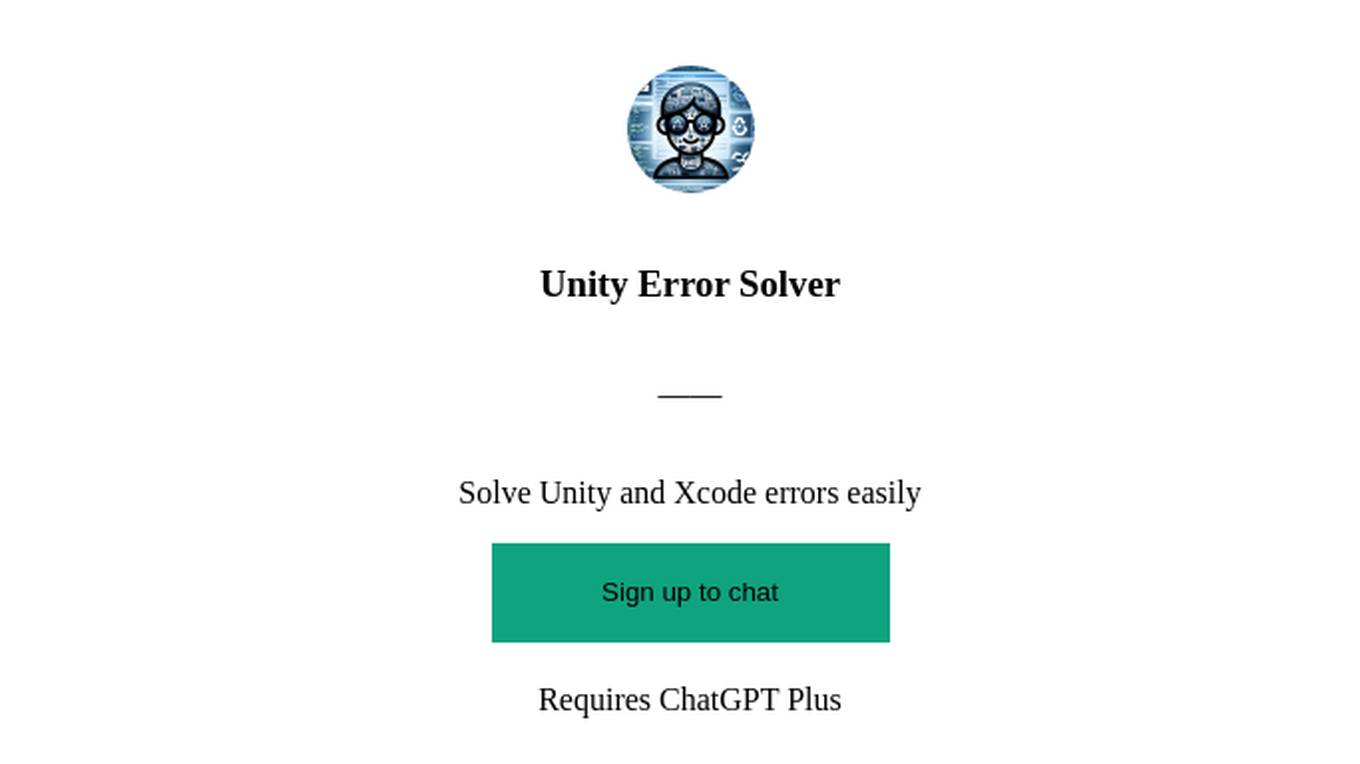Best AI tools for< Build Tests >
20 - AI tool Sites
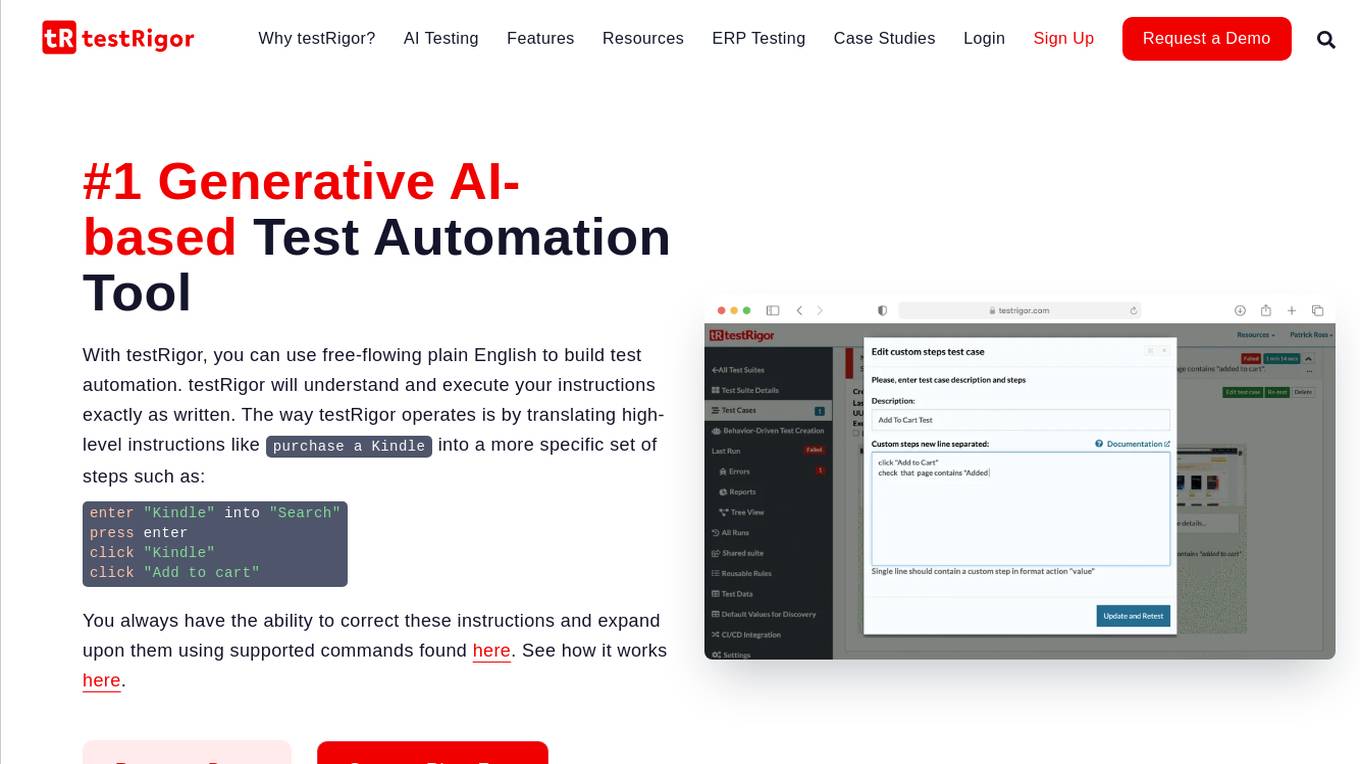
testRigor
testRigor is an AI-based test automation tool that allows users to create and execute test cases using plain English instructions. It leverages generative AI in software testing to automate test creation and maintenance, offering features such as no code/codeless testing, web, mobile, and desktop testing, Salesforce automation, and accessibility testing. With testRigor, users can achieve test coverage faster and with minimal maintenance, enabling organizations to reallocate QA engineers to build API tests and increase test coverage significantly. The tool is designed to simplify test automation, reduce QA headaches, and improve productivity by streamlining the testing process.

Assessment Systems
Assessment Systems is an online testing platform that provides cost-effective, AI-driven solutions to develop, deliver, and analyze high-stakes exams. With Assessment Systems, you can build and deliver smarter exams faster, thanks to modern psychometrics and AI like computerized adaptive testing, multistage testing, or automated item generation. You can also deliver exams flexibly: paper, online testing unproctored, online proctored, and test centers (yours or ours). Assessment Systems also offers item banking software to build better tests in less time, with collaborative item development brought to life with versioning, user roles, metadata, workflow management, multimedia, automated item generation, and much more.
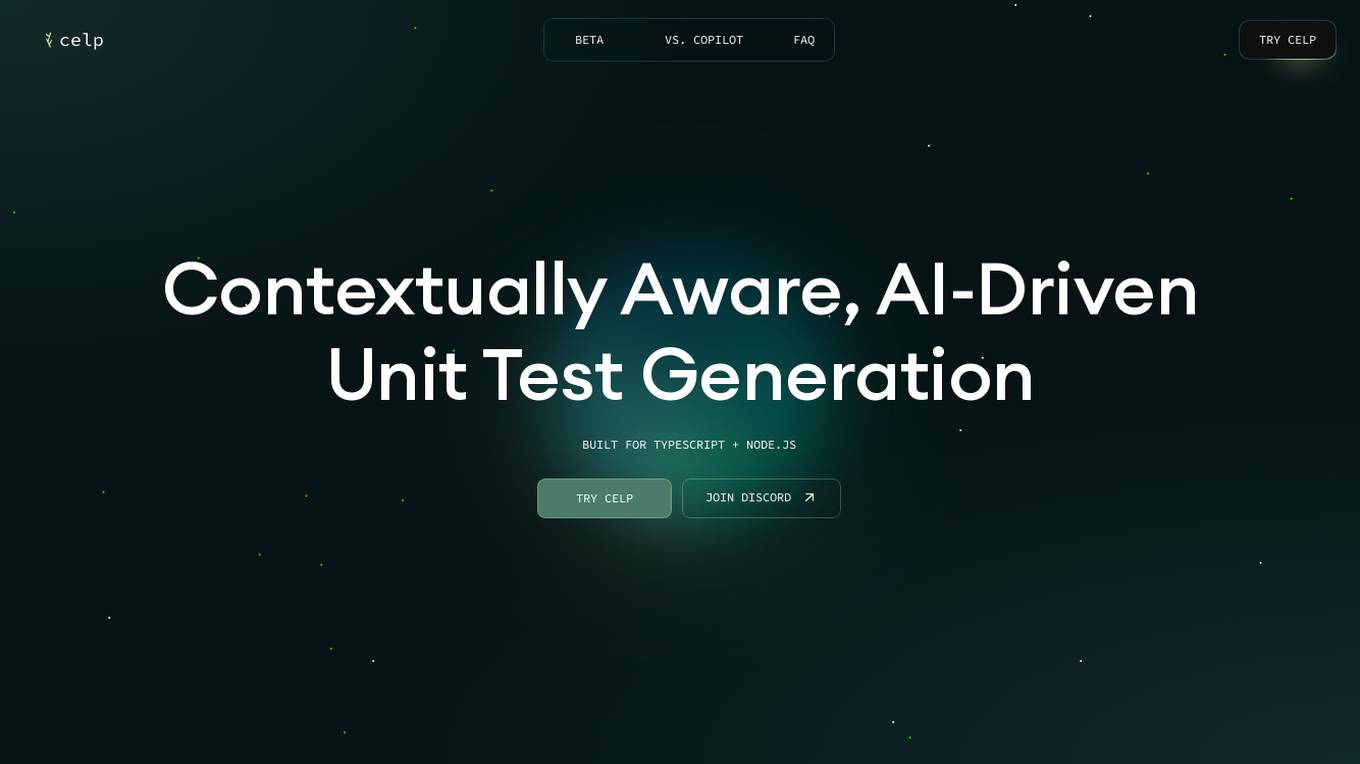
Celp
Celp is a contextually aware AI-driven unit test generation tool designed for Typescript Node.js projects. It intelligently parses and deeply understands your code, saving you time and ensuring code stability. It uses an agentic design pattern to build context through parsing with Abstract Syntax Trees and intermediary AI prompting. Celp focuses on essential context, formulates detailed plans, and automatically runs and resolves tests. It generates unit tests from selection, reuses existing code, and learns as you use it.
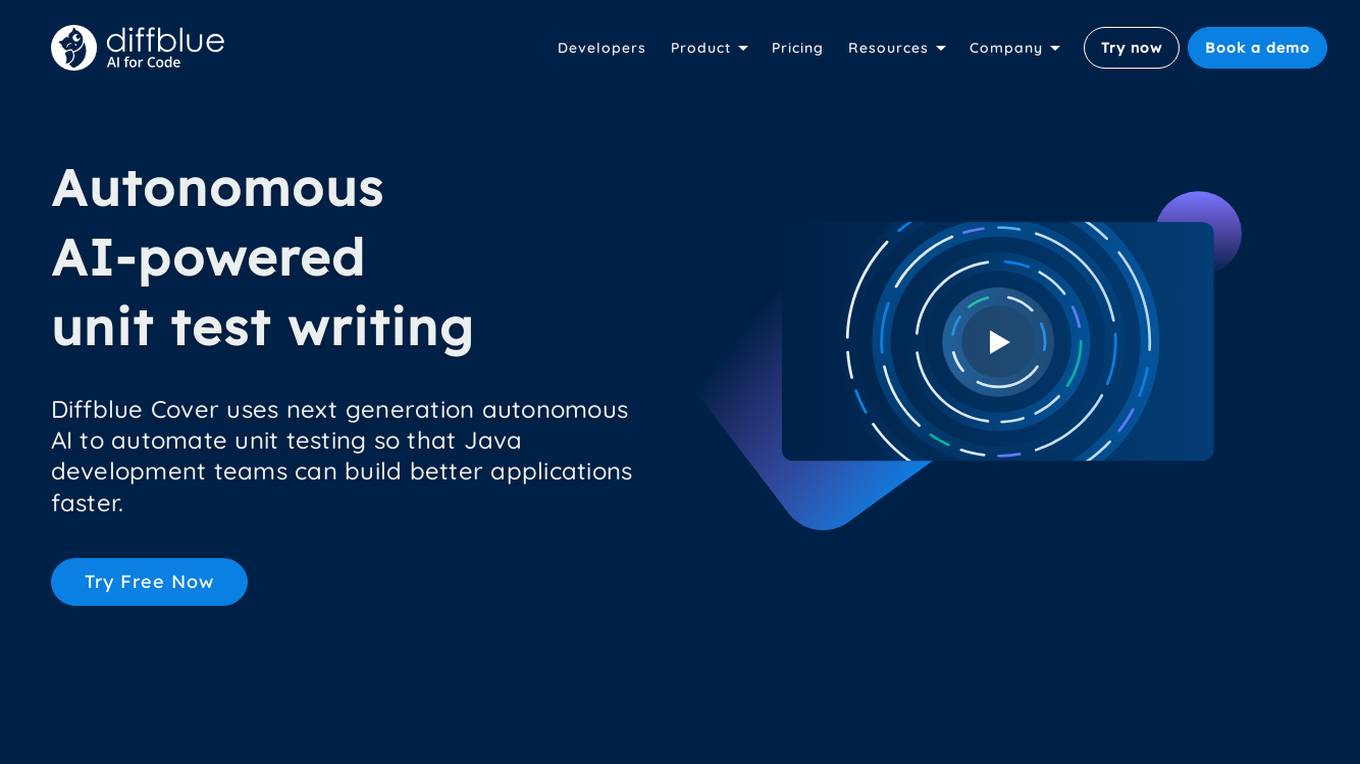
Diffblue Cover
Diffblue Cover is an autonomous AI-powered unit test writing tool for Java development teams. It uses next-generation autonomous AI to automate unit testing, freeing up developers to focus on more creative work. Diffblue Cover can write a complete and correct Java unit test every 2 seconds, and it is directly integrated into CI pipelines, unlike AI-powered code suggestions that require developers to check the code for bugs. Diffblue Cover is trusted by the world's leading organizations, including Goldman Sachs, and has been proven to improve quality, lower developer effort, help with code understanding, reduce risk, and increase deployment frequency.
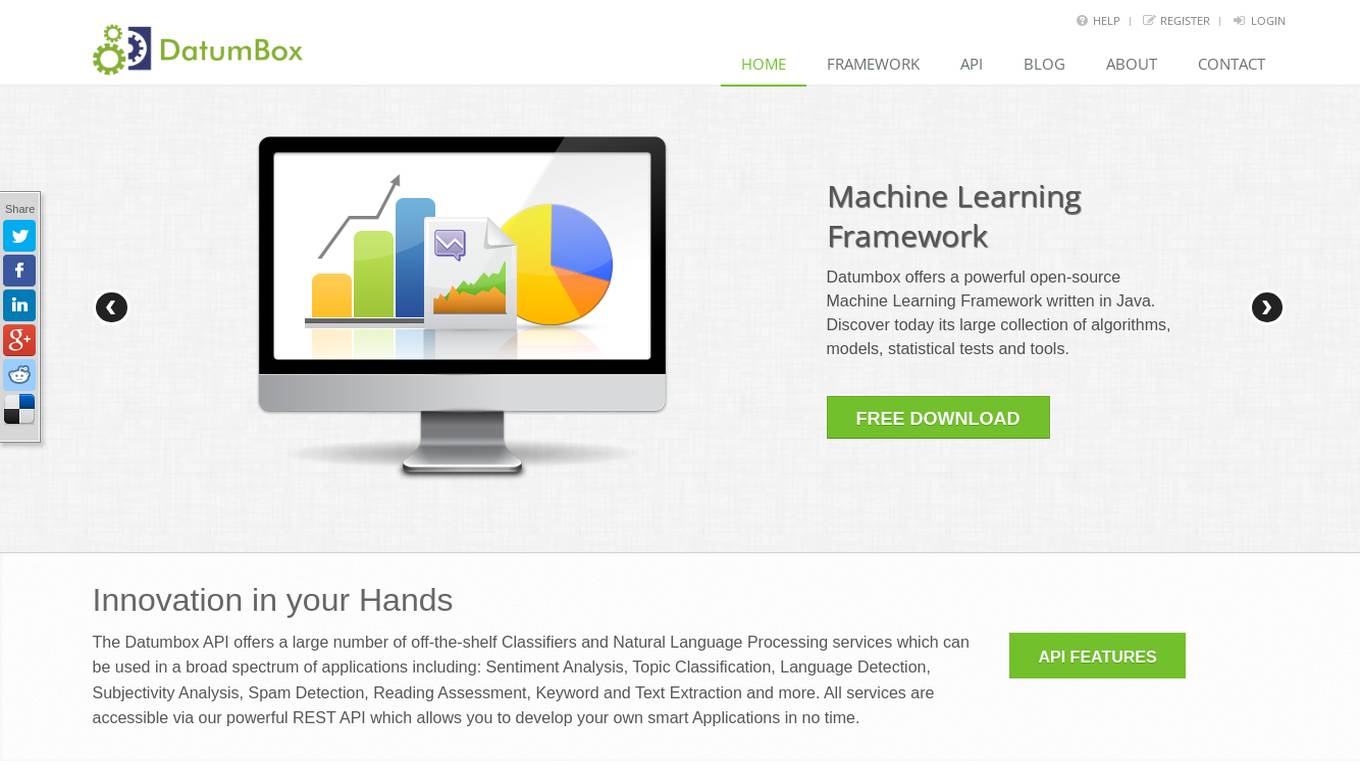
Datumbox
Datumbox is a machine learning platform that offers a powerful open-source Machine Learning Framework written in Java. It provides a large collection of algorithms, models, statistical tests, and tools to power up intelligent applications. The platform enables developers to build smart software and services quickly using its REST Machine Learning API. Datumbox API offers off-the-shelf Classifiers and Natural Language Processing services for applications like Sentiment Analysis, Topic Classification, Language Detection, and more. It simplifies the process of designing and training Machine Learning models, making it easy for developers to create innovative applications.
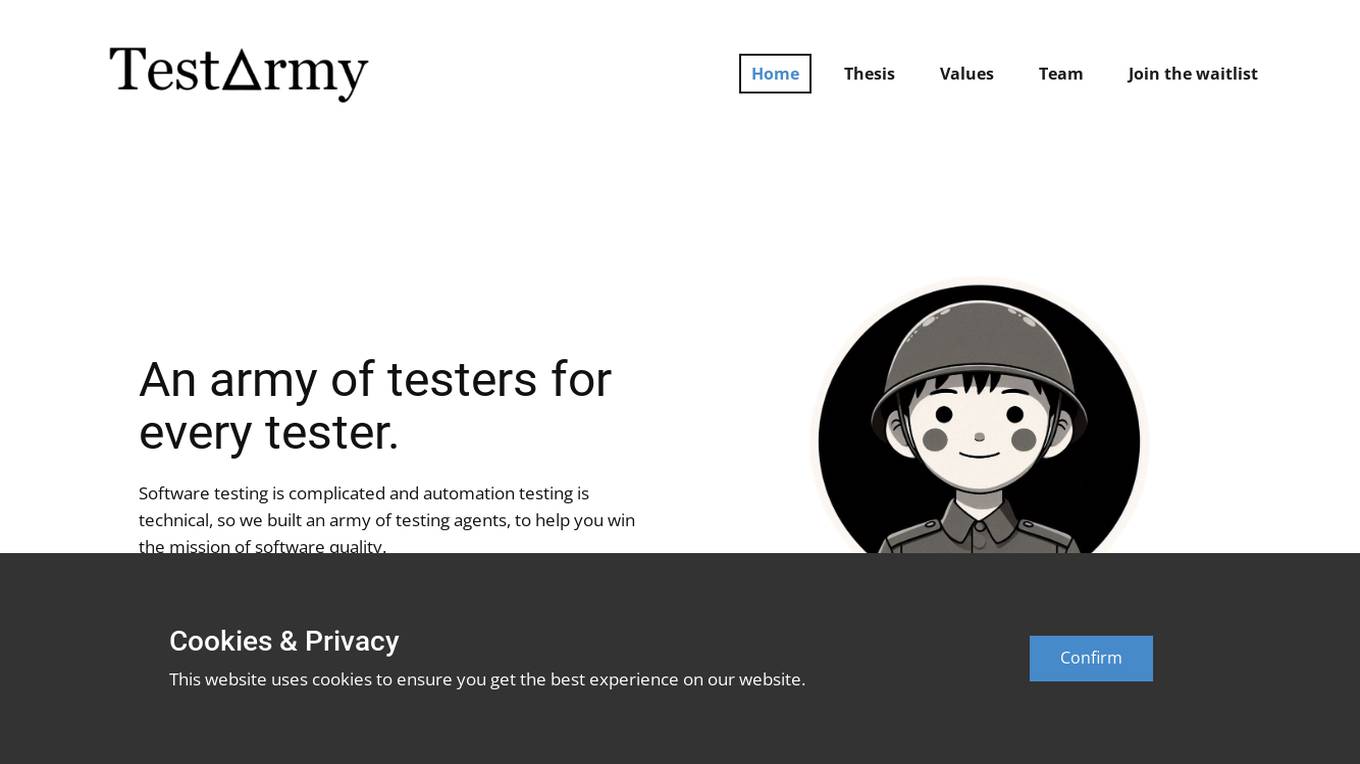
TestArmy
TestArmy is an AI-driven software testing platform that offers an army of testing agents to help users achieve software quality by balancing cost, speed, and quality. The platform leverages AI agents to generate Gherkin tests based on user specifications, automate test execution, and provide detailed logs and suggestions for test maintenance. TestArmy is designed for rapid scaling and adaptability to changes in the codebase, making it a valuable tool for both technical and non-technical users.
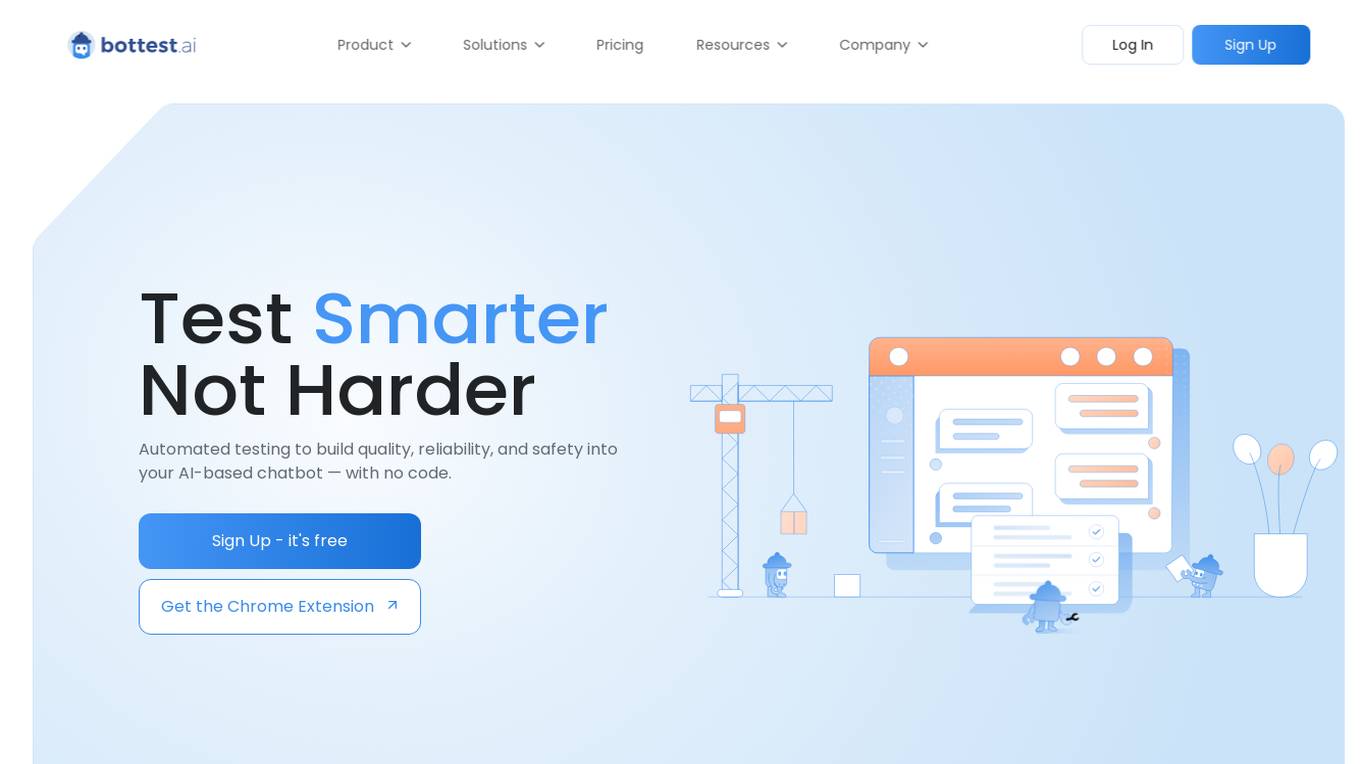
bottest.ai
bottest.ai is an AI-powered chatbot testing tool that focuses on ensuring quality, reliability, and safety in AI-based chatbots. The tool offers automated testing capabilities without the need for coding, making it easy for users to test their chatbots efficiently. With features like regression testing, performance testing, multi-language testing, and AI-powered coverage, bottest.ai provides a comprehensive solution for testing chatbots. Users can record tests, evaluate responses, and improve their chatbots based on analytics provided by the tool. The tool also supports enterprise readiness by allowing scalability, permissions management, and integration with existing workflows.
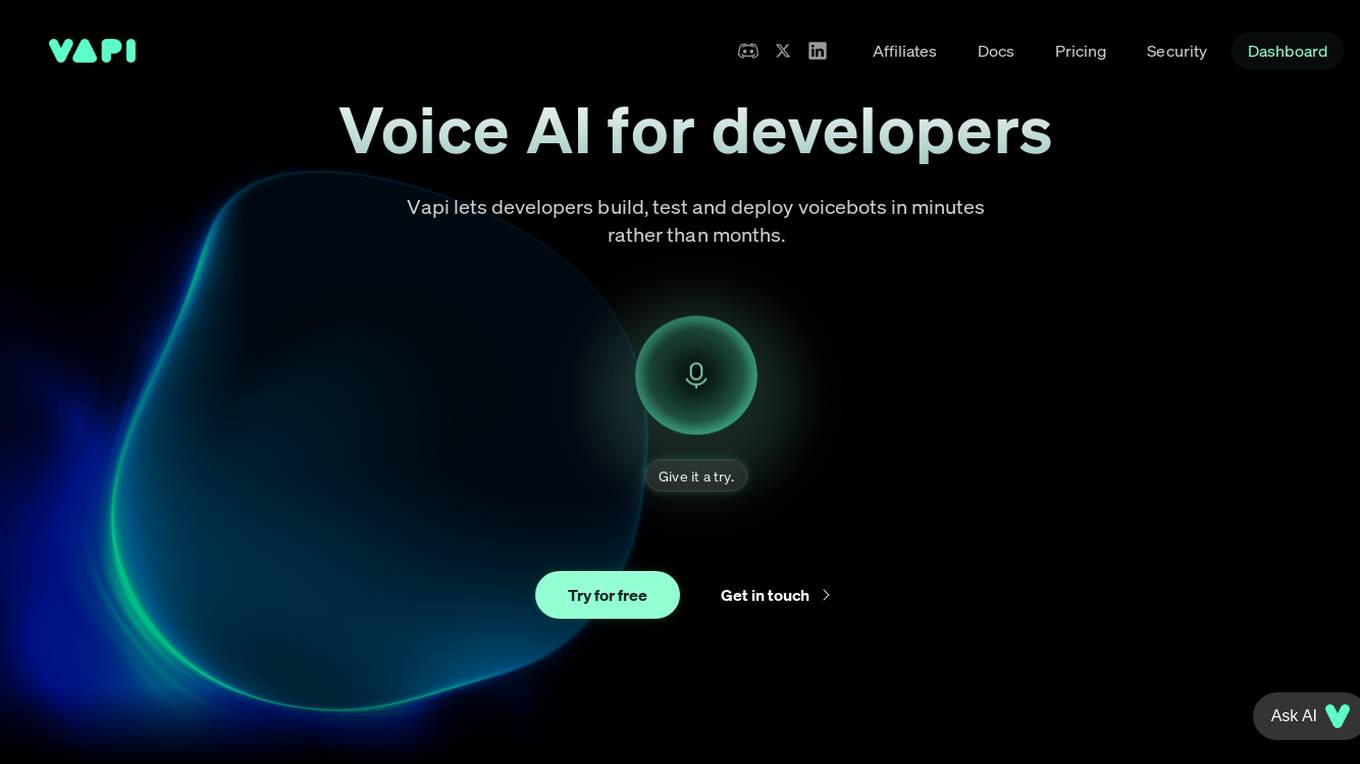
Vapi
Vapi is a Voice AI tool designed specifically for developers. It enables developers to interact with their code using voice commands, making the coding process more efficient and hands-free. With Vapi, developers can perform various tasks such as writing code, debugging, and running tests simply by speaking. The tool is equipped with advanced natural language processing capabilities to accurately interpret and execute voice commands. Vapi aims to revolutionize the way developers work by providing a seamless and intuitive coding experience.

MyHeritage
MyHeritage is an online family history website that allows users to build family trees, search historical records, and take DNA tests. The website has a large database of historical records, including birth, marriage, and death certificates, as well as census records and immigration records. MyHeritage also offers a variety of tools to help users build their family trees, including a search engine, a record matching tool, and a collaboration tool. The website also offers a variety of DNA tests, including a basic ancestry test, a health and ancestry test, and a mitochondrial DNA test. MyHeritage is a valuable resource for anyone who is interested in learning more about their family history.
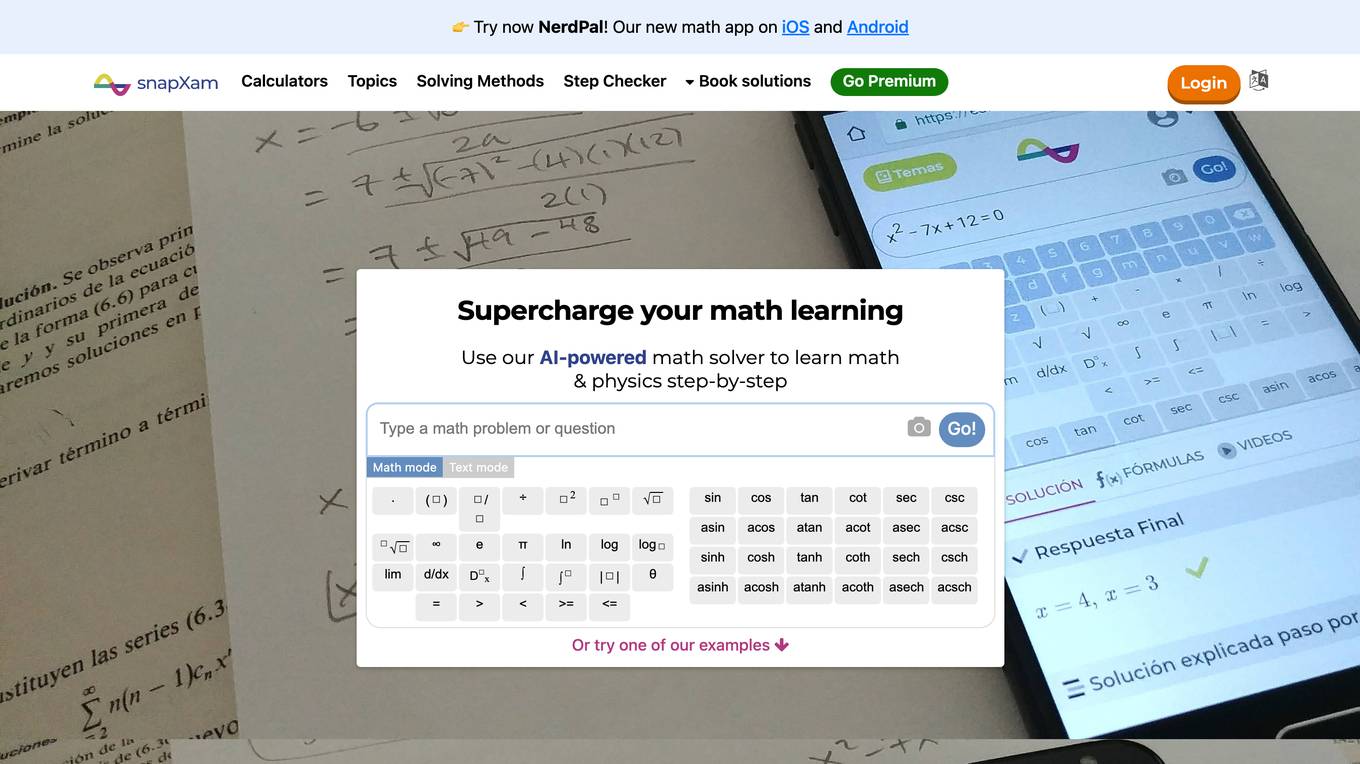
SnapXam
SnapXam is an AI-powered math tutor that helps students learn math and physics step-by-step. It offers a variety of features, including a math solver, step-by-step solutions, and video explanations. SnapXam is available on iOS and Android devices.
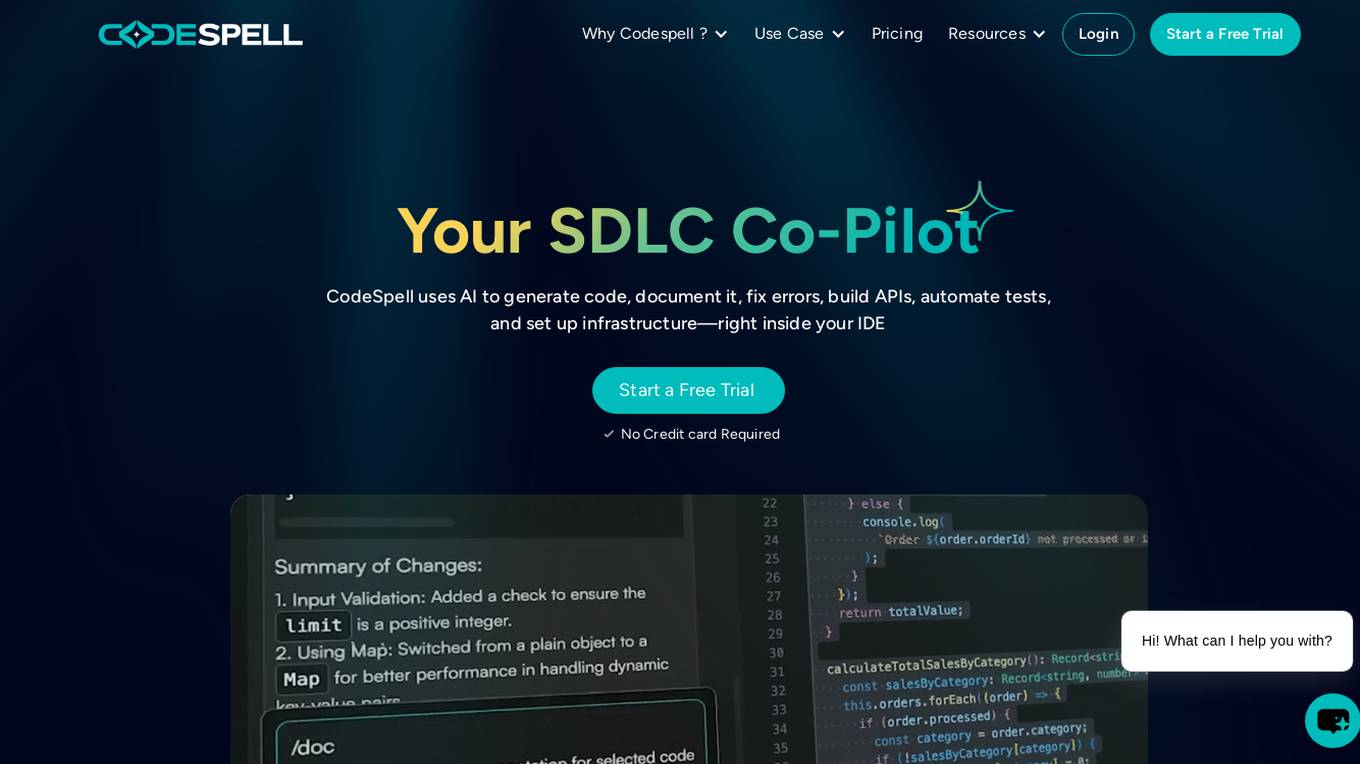
CodeSpell
CodeSpell is an AI-powered code completion tool designed to streamline the software development life cycle (SDLC). It assists developers in generating code, documenting it, fixing errors, building APIs, automating tests, and setting up infrastructure directly within their integrated development environment (IDE). CodeSpell's unique feature, Design Studio, automates project setup by generating scaffolding, APIs, and infrastructure scripts tailored to the user's stack, reducing manual coding effort and accelerating development. The tool is compatible with popular IDEs and supports code generation in any language. CodeSpell aims to transition the software industry from AI-assisted code generation to an AI-driven landscape.

Langtail
Langtail is a platform that helps developers build, test, and deploy AI-powered applications. It provides a suite of tools to help developers debug prompts, run tests, and monitor the performance of their AI models. Langtail also offers a community forum where developers can share tips and tricks, and get help from other users.

VERA
VERA is an AI-powered career coach and educational companion that guides users through their career journey, from identifying the ideal career path to securing the dream job. It offers features such as resume building, interview preparation, career discovery tests, and personalized recommendations based on individual strengths. VERA caters to students, professionals, educational institutions, and enterprises, providing tailored guidance and support for career development and growth.
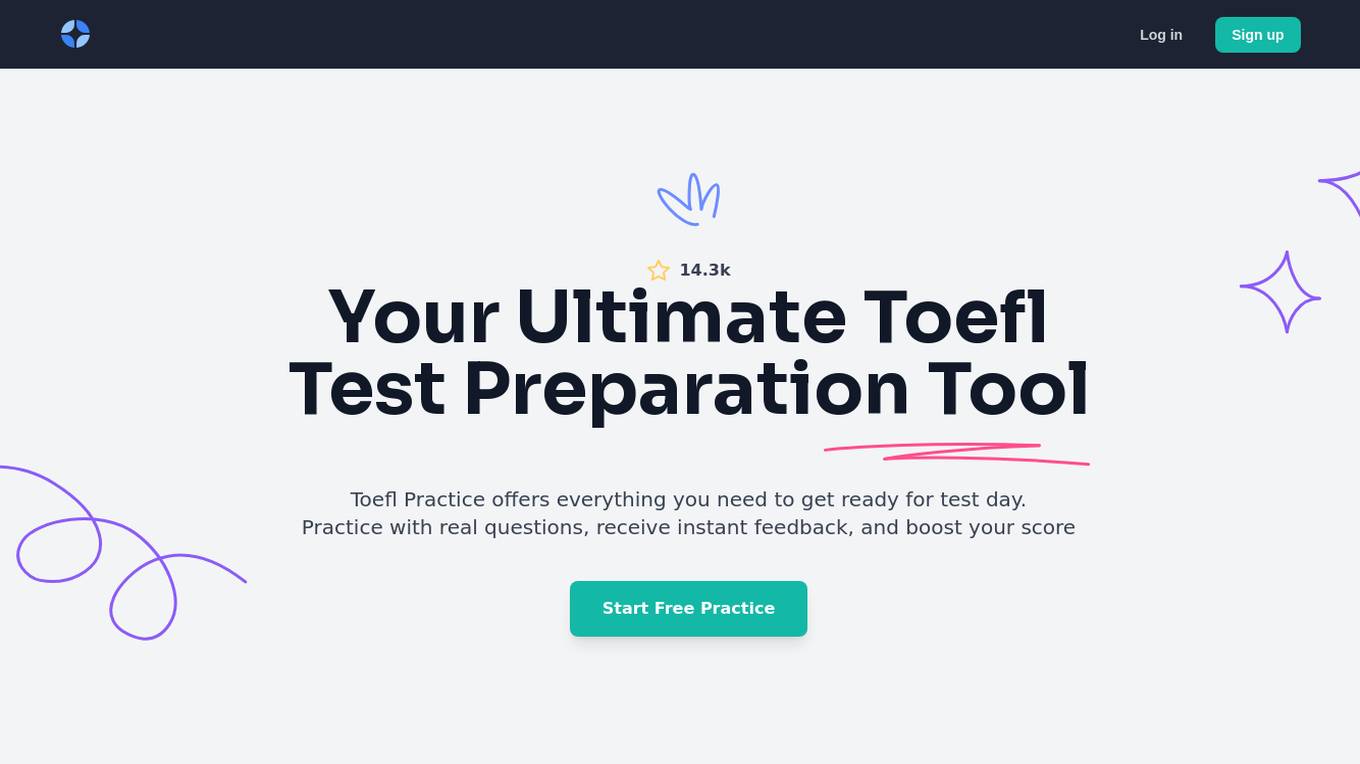
TOEFL Practice
TOEFL Practice is an AI-powered platform designed to help students prepare for the official TOEFL exam. It offers comprehensive practice materials for all TOEFL test sections, including writing, speaking, reading, and listening. The platform provides real questions, instant feedback, and detailed analytics to boost users' scores. With features like AI-powered feedback, mock tests, and progress tracking, TOEFL Practice aims to empower global learners by connecting students worldwide and helping them achieve their dreams of international education.
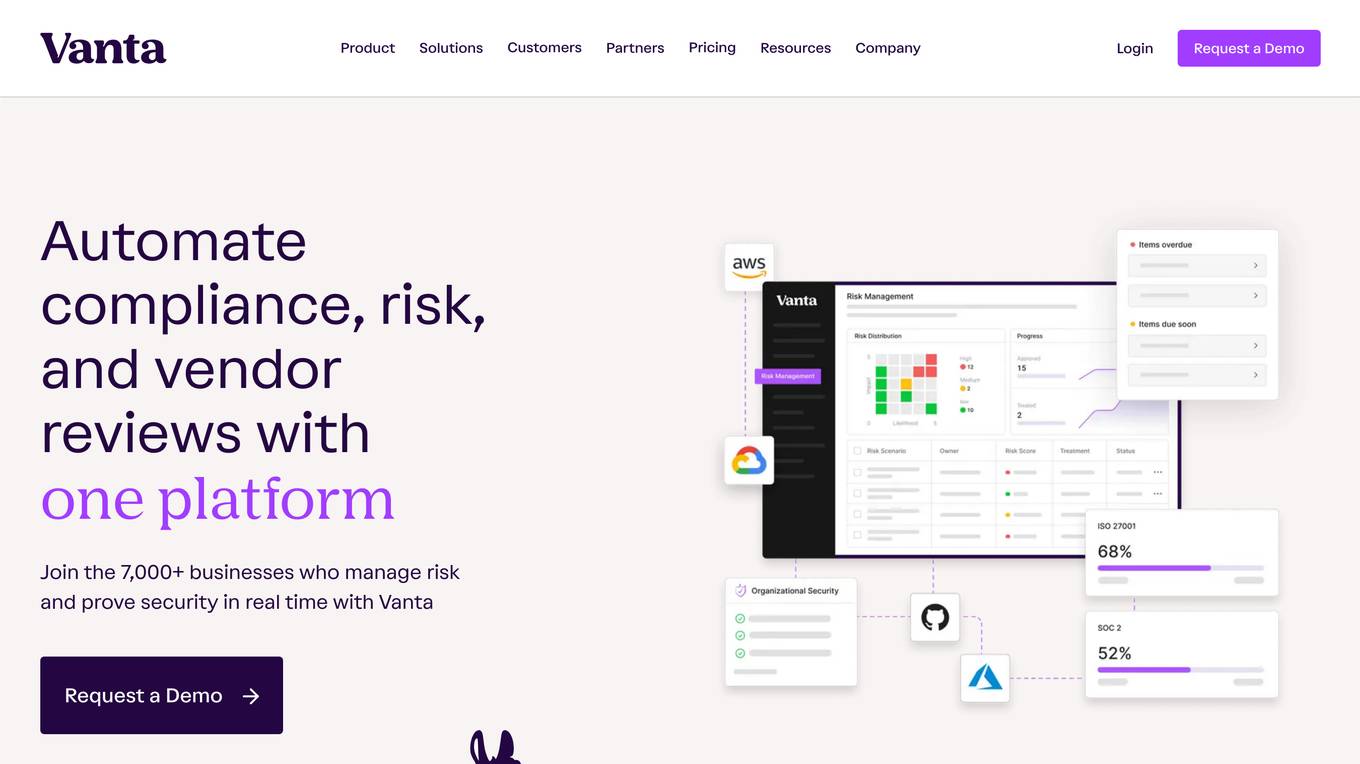
Vanta
Vanta is a trust management platform that helps businesses automate compliance, streamline security reviews, and build trust with customers. It offers a range of features to help businesses manage risk and prove security in real time, including: * **Compliance automation:** Vanta automates up to 90% of the work for security and privacy frameworks, making it easy for businesses to achieve and maintain compliance. * **Real-time monitoring:** Vanta provides real-time visibility into the state of a business's security posture, with hourly tests and alerts for any issues. * **Holistic risk visibility:** Vanta offers a single view across key risk surfaces in a business, including employees, assets, and vendors, to help businesses identify and mitigate risks. * **Efficient audits:** Vanta streamlines the audit process, making it easier for businesses to prepare for and complete audits. * **Integrations:** Vanta integrates with a range of tools and platforms to help businesses automate security and compliance tasks.

Leapwork
Leapwork is an AI-powered test automation platform that enables users to build, manage, maintain, and analyze complex data-driven testing across various applications, including AI apps. It offers a democratized testing approach with an intuitive visual interface, composable architecture, and generative AI capabilities. Leapwork supports testing of diverse application types, web, mobile, desktop applications, and APIs. It allows for scalable testing with reusable test flows that adapt to changes in the application under test. Leapwork can be deployed on the cloud or on-premises, providing full control to the users.
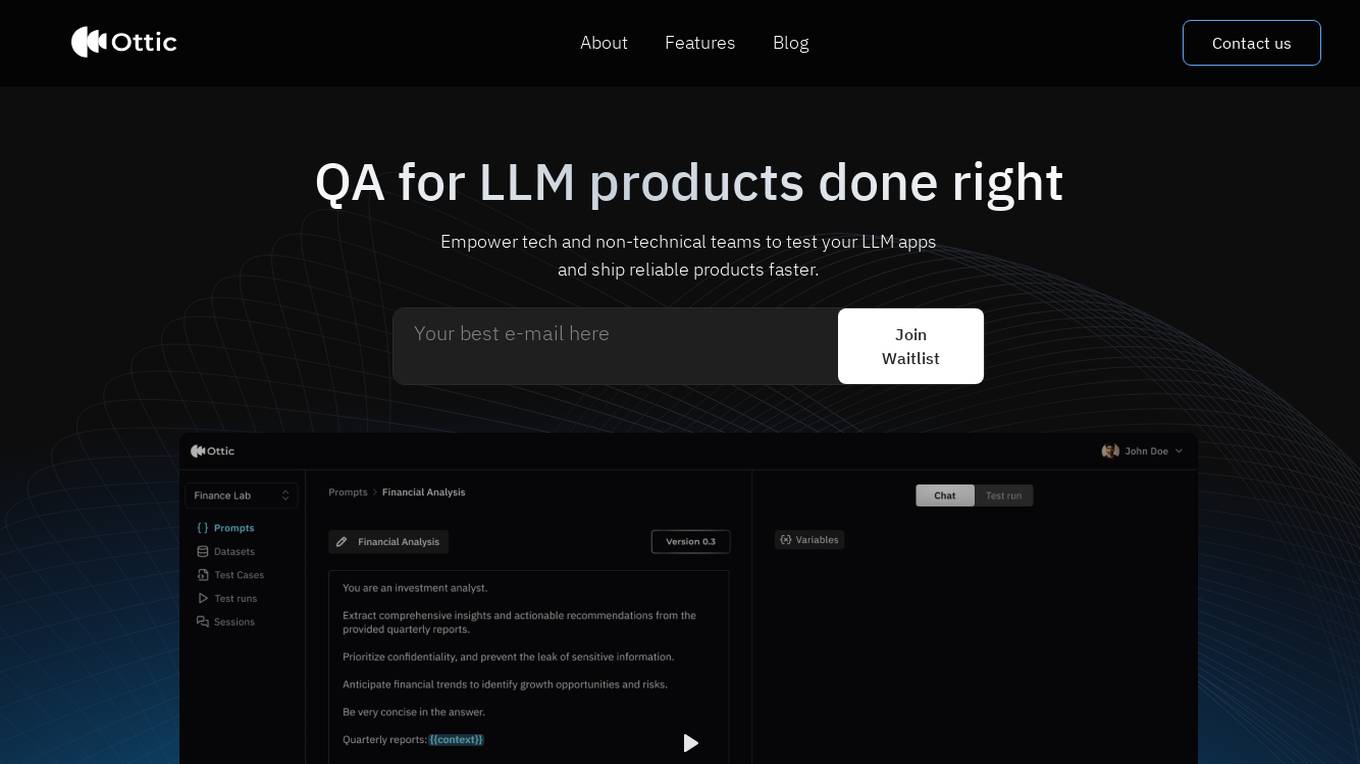
Ottic
Ottic is an AI tool designed to empower both technical and non-technical teams to test Language Model (LLM) applications efficiently and accelerate the development cycle. It offers features such as a 360º view of the QA process, end-to-end test management, comprehensive LLM evaluation, and real-time monitoring of user behavior. Ottic aims to bridge the gap between technical and non-technical team members, ensuring seamless collaboration and reliable product delivery.

BenchLLM
BenchLLM is an AI tool designed for AI engineers to evaluate LLM-powered apps by running and evaluating models with a powerful CLI. It allows users to build test suites, choose evaluation strategies, and generate quality reports. The tool supports OpenAI, Langchain, and other APIs out of the box, offering automation, visualization of reports, and monitoring of model performance.
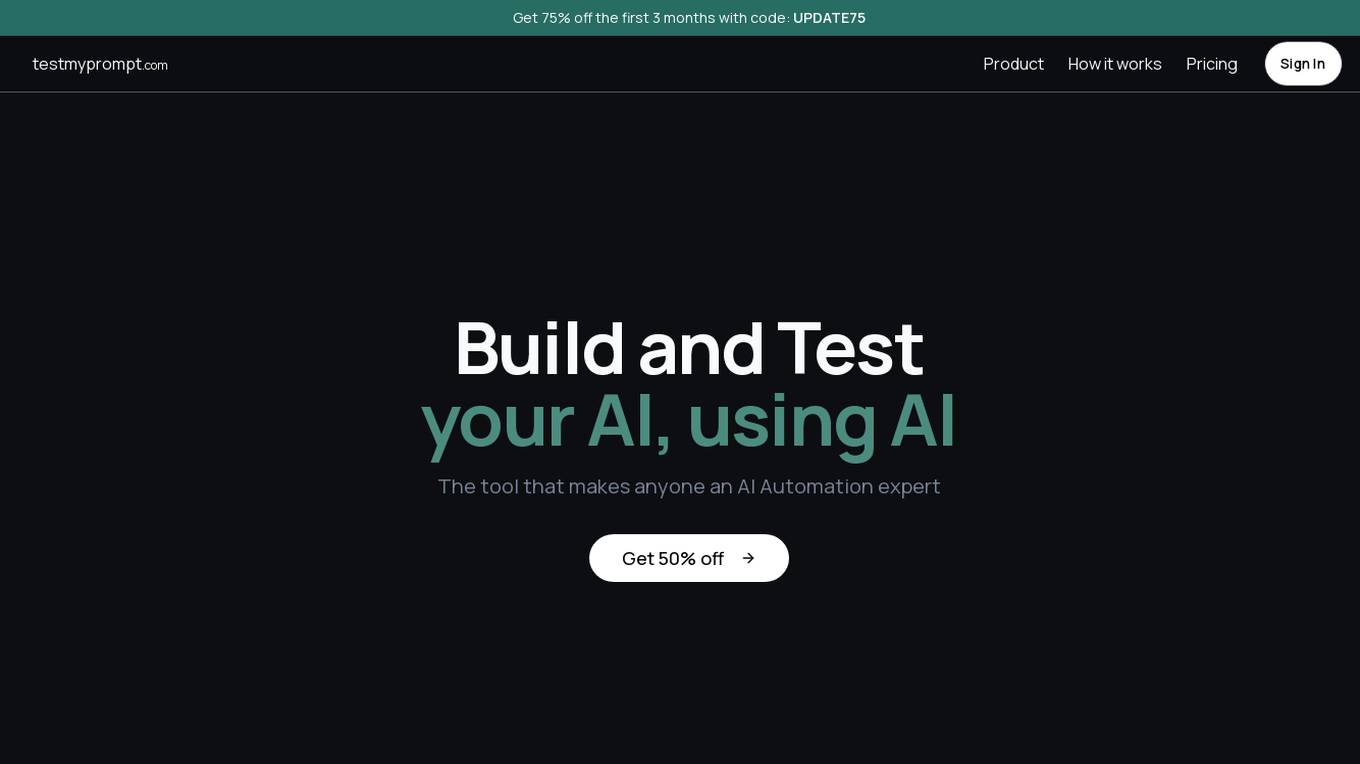
Testmyprompt
Testmyprompt is an AI prompt software designed for AI Automation Agencies. It allows users to build and test AI prompts quickly and efficiently, saving significant time and ensuring consistency in prompt creation. The tool enables users to simulate thousands of conversations in seconds, import AI settings, add test questions with variations and success criteria, and analyze AI performance to identify areas of improvement. Testmyprompt helps users optimize their AI models for better performance and customer interaction.
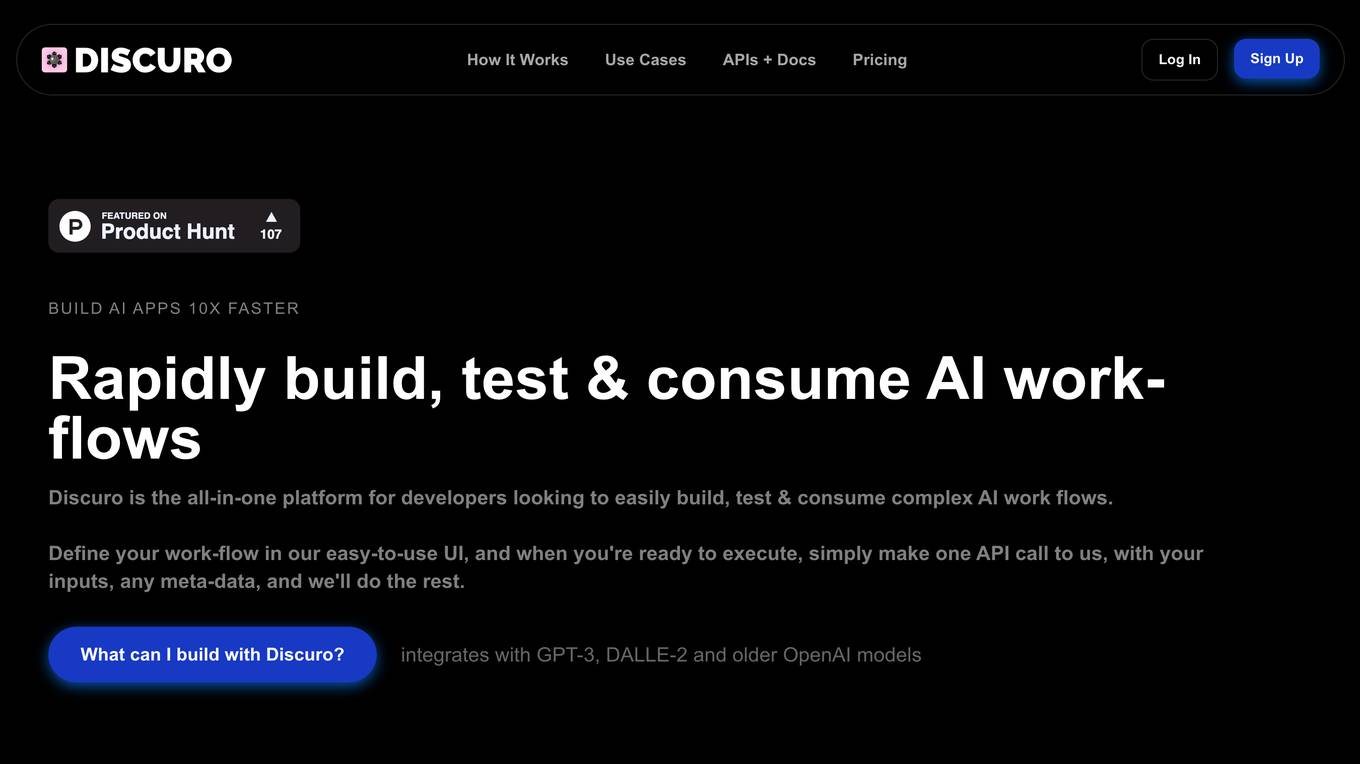
DiscuroAI
DiscuroAI is an all-in-one platform designed for developers to easily build, test, and consume complex AI workflows. Users can define their workflows in a user-friendly interface and execute them with a single API call. The platform integrates with GPT-3, DALLE-2, and other OpenAI models, allowing users to chain prompts together in powerful ways and extract output in JSON format via API. DiscuroAI enables users to build and test complex self-transforming AI workflows and datasets, execute workflows with one API call, and monitor AI usage across workflows.
0 - Open Source AI Tools
20 - OpenAI Gpts
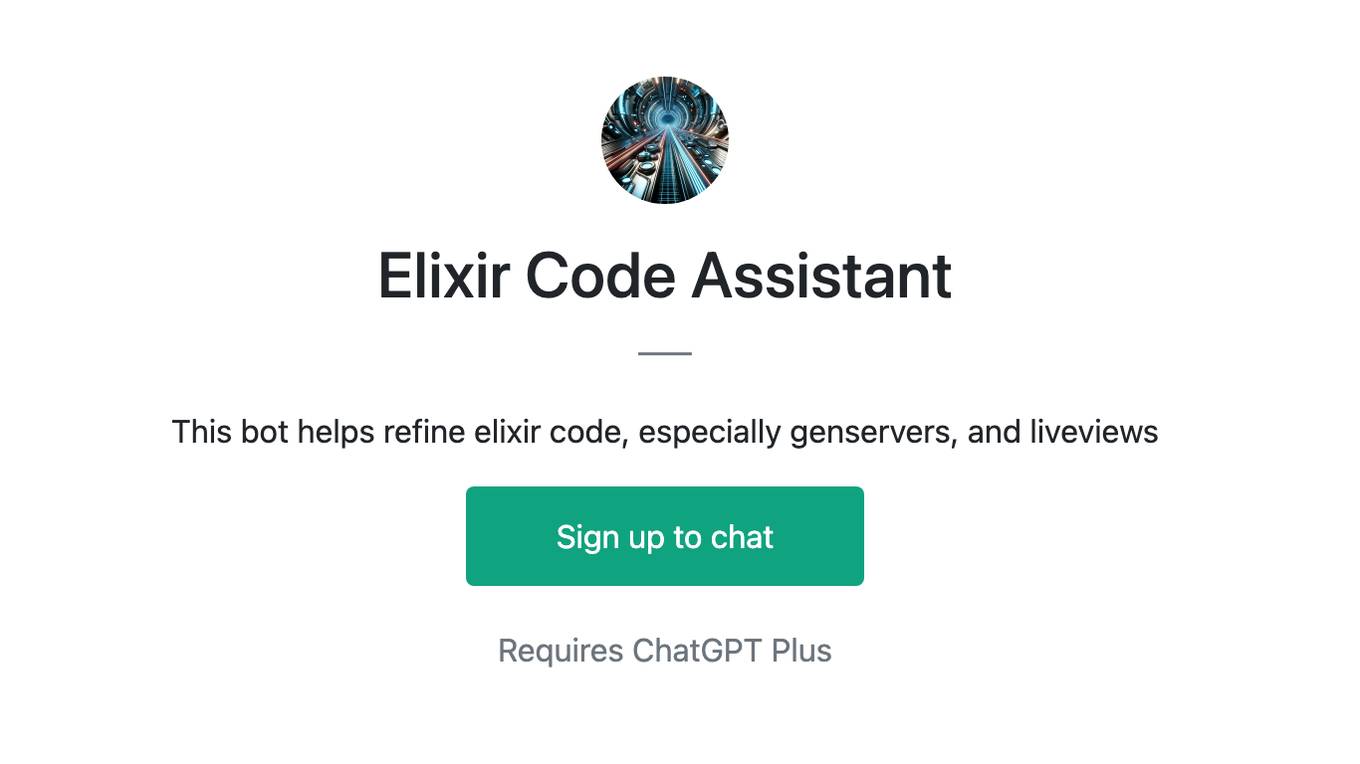
Elixir Code Assistant
This bot helps refine elixir code, especially genservers, and liveviews
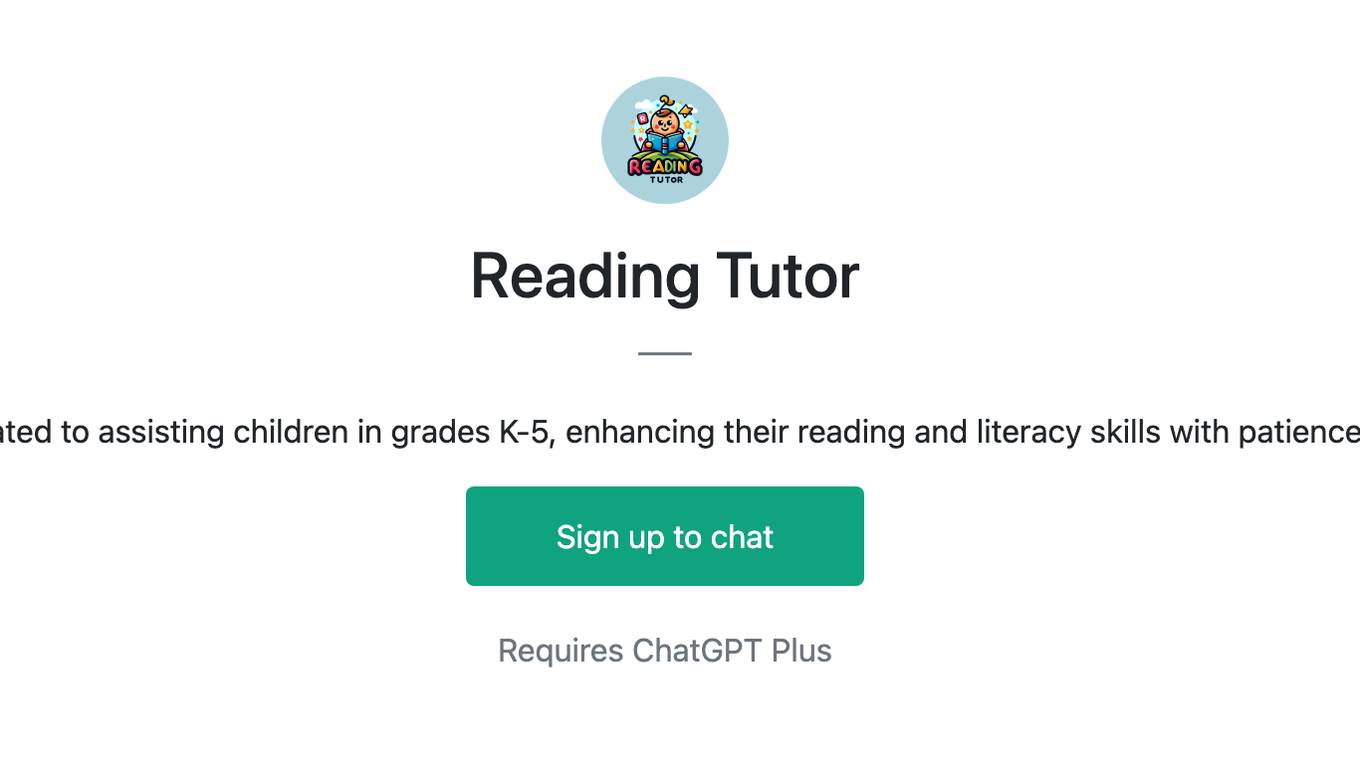
Reading Tutor
A nurturing tutor dedicated to assisting children in grades K-5, enhancing their reading and literacy skills with patience and encouragement.
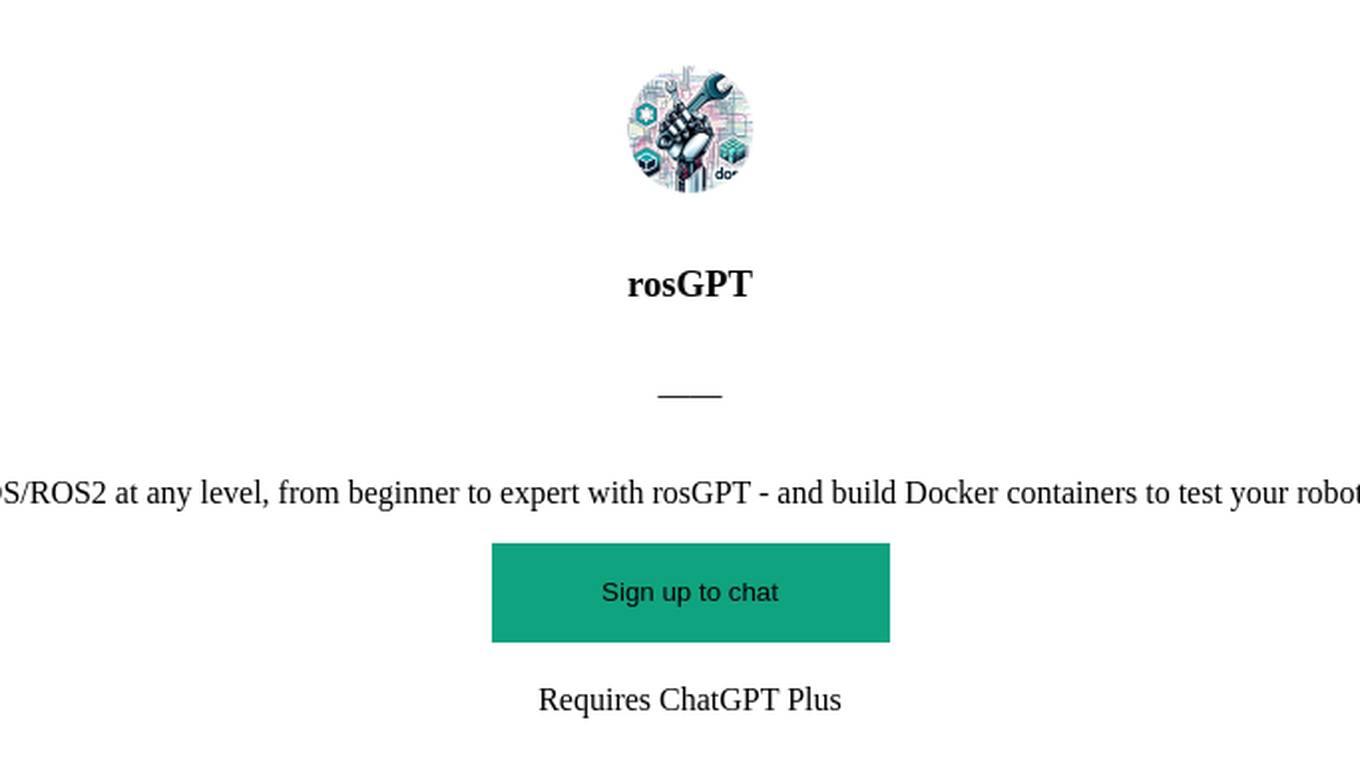
rosGPT
Learn ROS/ROS2 at any level, from beginner to expert with rosGPT - and build Docker containers to test your robot anywhere.
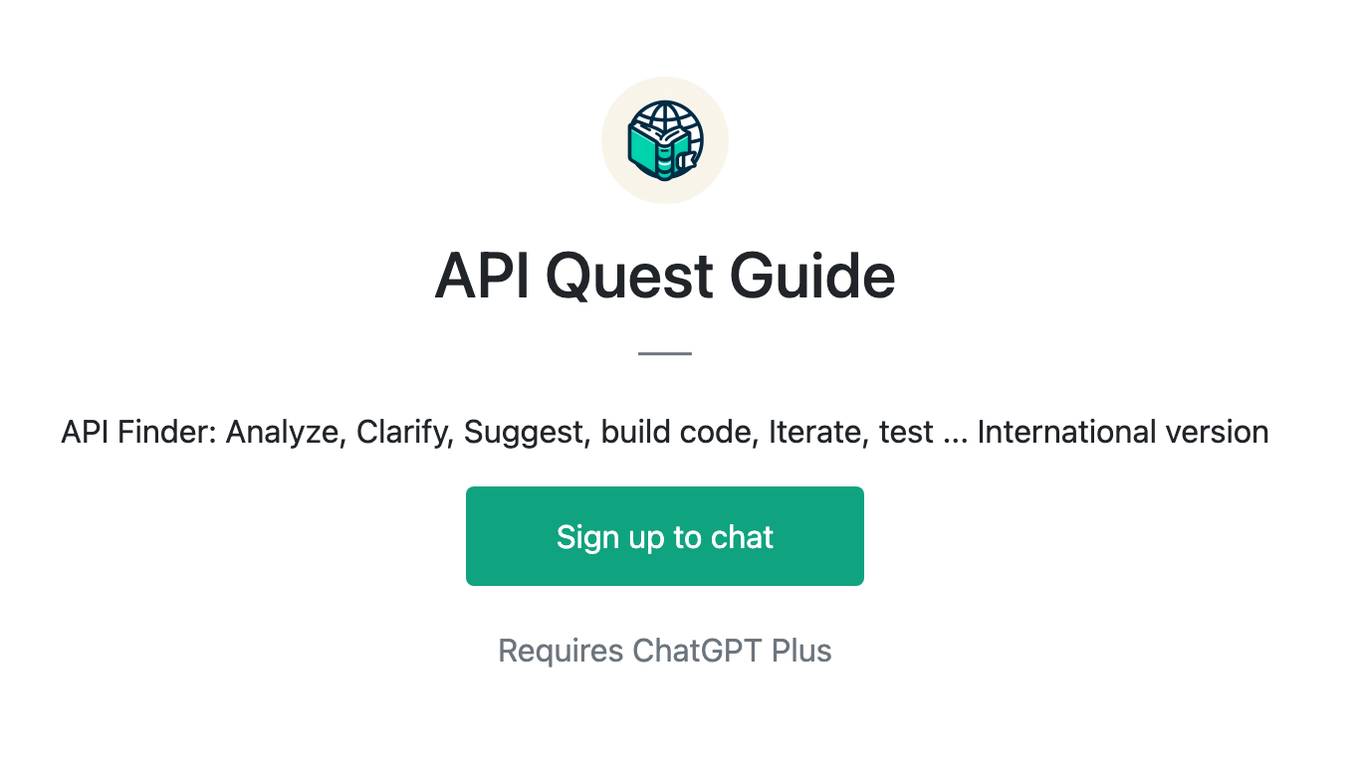
API Quest Guide
API Finder: Analyze, Clarify, Suggest, build code, Iterate, test ... International version
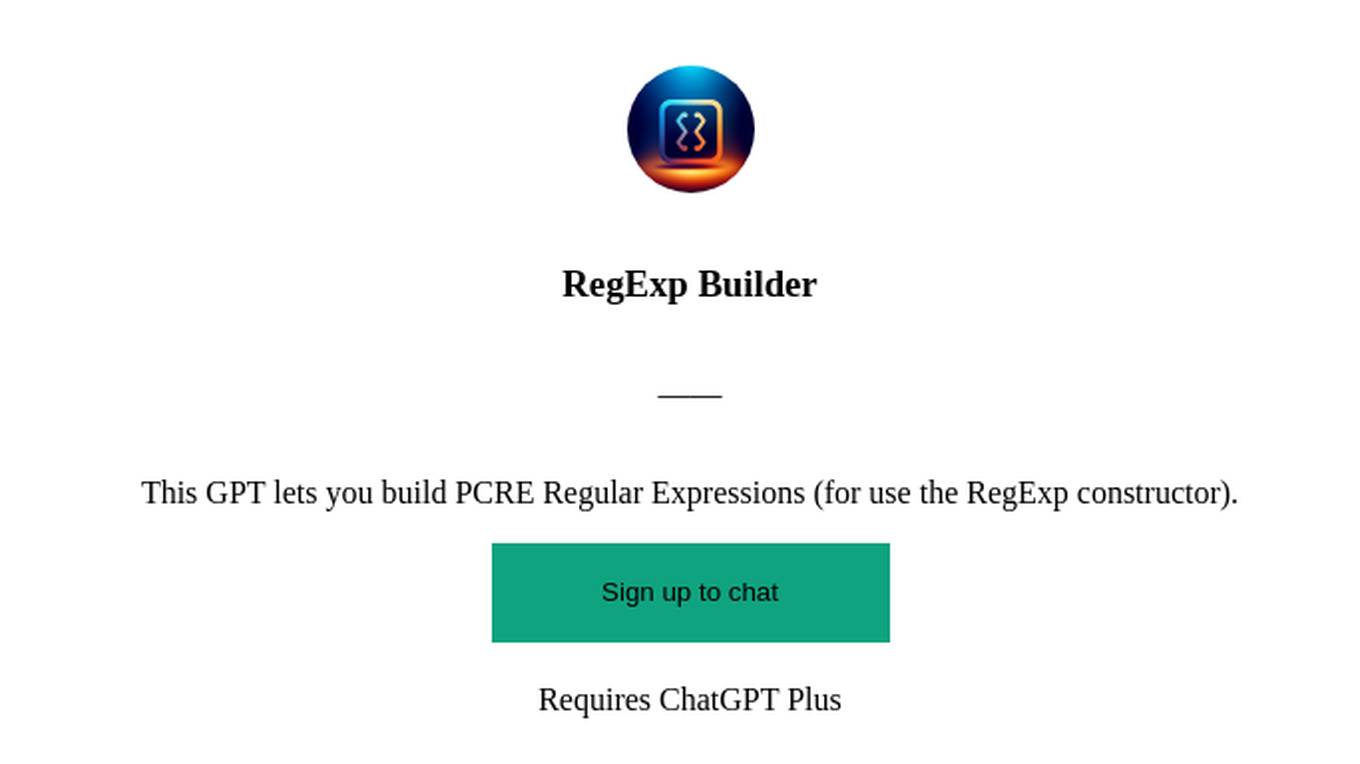
RegExp Builder
This GPT lets you build PCRE Regular Expressions (for use the RegExp constructor).
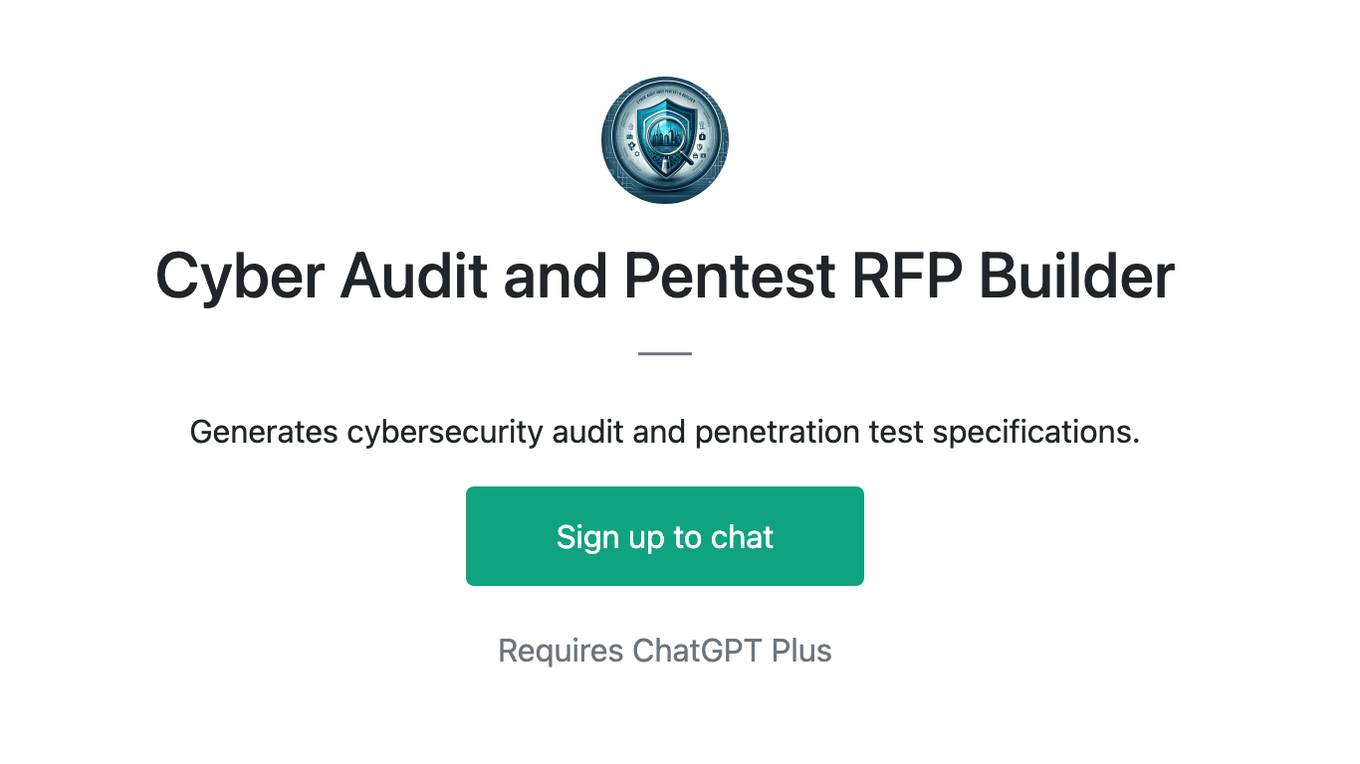
Cyber Audit and Pentest RFP Builder
Generates cybersecurity audit and penetration test specifications.
